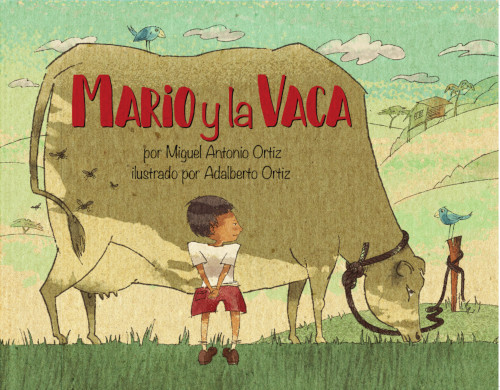Meredith Sue Willis's
Books for Readers #216
This Newsletter Looks Best in its Permanent Location Online!
Back Issues MSW Home About Meredith Sue Willis Contact
September 1, 2021
MSW at NYU in Fall 2021--by Zoom!
Wednesdays, September 22- December 1, 2021:
MSW teaches Novel Writing WRIT1-CE9355001 at NYU online
6:30 p.m. to 8:50 p.m.Saturday November 13, 2021:
One day class Jump Start Your Novel WRIT2-CS9002
at NYU by Zoom, 1:00 p.m. to 5:10 p.m.


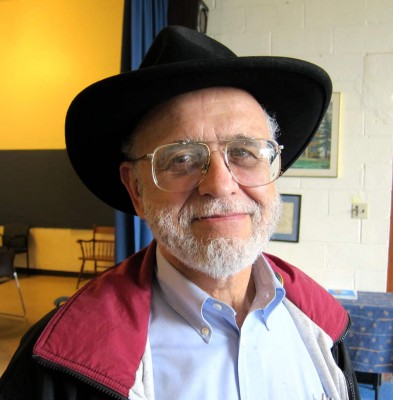
Rajia Hassib, Joel Peckham, David Sprintzen
Contents
Book Reviews
Announcements--Things Happening!
Genre Selections
Readers Respond
Things to Read Online
Irene Weinberger Books
Reading Lists
TABLE OF CONTENTS
Issue # 216Reviews are alphabetical by author, not reviewer.
If not otherwise noted, reviews are written by MSW.
More Michael Connelly
The Last Coyote
Trunk Music
Angels Flight
Forest Mage (Soldier Son trilogy book 2) Robin Hobb
A Pure Heart: A Novel by Rajia Hassib Reviewed by Marc Harshman
American Jezebel: The Uncommon Life of Anne Hutchinson,
the Woman Who Defied the Puritans by Eve LaPlanteBone Music by Joel Peckham
Melitte by Fatima Shaik
The Year of Lear: Shakespeare in 1606 by James Shapiro
Critique of Western Philosophy and Social Theory by David Sprintzen
Reviewed by Joe ChumanFellowship of the Ring (first book of Lord of the Rings) by J. R. R. Tolkien
BOOK REVIEWS
I have been writing this online review for more than twenty years. My first, very short issue was in December, 2000. In an effort to take a little of the means of production into my own hands, I decided to become a small-time gate keeper in the reading and writing business.. After having been published by a couple of the largest publishing houses in the country, I had come to realize that the kind of work I did was not making enough money for the publishers to keep publishing me. I was rarely keeping a single publisher for more than one book.
At the same times, the books I was reading were almost never brand-new or best sellers. I was learning
something of how the economics of book publishing was changing, as were people's reading habits. I joined with some other writers and poets to reprint our out-of-print books (Hamilton Stone Editions), and eventually we published some new books too. We started an online literary magazine,
The Hamilton Stone Review. It felt to me like the right time to share my notes on my reading. I never expected a large subscription list, although it has grown to nearly 1,000 people. Many of them, of course, as with all Web publishing, never open the e-mail ("click through") or go to the site to read.
I like being one of a multitude of places you can get ideas for your reading besides The New York Times Book Review. Outlets for print reviews have become very few, and as time went on, people I knew personally or professionally would occasionally offer, or be prevailed upon, to write reviews.
This issue has a couple of those reviews by others. I am honored to have a review of the excellent A Pure Heart by Rajia Hassib written by the Poet Laureate of West Virginia, Marc Harshman (Woman in Red Anorak, winner of the Blue Lynx Prize).
I also have a review of David Sprintzen's work of philosophy Critique of Western Philosophy and Social Theory written by Joe Chuman, leader emeritus of the Bergen, New Jersey, Ethical Culture Society and professor of Human Rights at Columbia University. This is a substantial piece about a book that touches on ideas that seem important to me, particularly that "Individualism is a species of reductionism, which is the fallacious paring down of complex realities into a single phenomenon or explanation." For me, who grew up on cowboy movies and the American myth of the lone hero standing against evil (High Noon to the tune of Tex Ritter's "Do not forsake me oh my darlin'!"), it has been a slow journey to understanding how intertwined we are with the world around us. Chuman focuses on Sprintzen's reasons for why this mythology is part of what is endangering our species.
The other reviews here come from my usual hodgepodge of joyous reading: a searing collection of poems by Joel Peckham; speedy reads amd fantasy (including The Lord of the Rings); the wonderful life-and-times book, The Year of Lear by James Shapiro.
Also, I serendipitously (that would be a Daily Special on Kindle books) came across a 2004 book called American Jezebel about Anne Hutchinson, the great seventeenth century Puritan who saw by an inward light and challenged the Puritan system. She was actually a young girl living in London in 1606 and might well have passed Shakespeare himself on the street--although her family would never have gone to his plays! Their idea of entertainment was long sermons and discussions of evidence that they had been predestined to Heaven.
American Jezebel: The Uncommon Life of Anne Hutchinson, the Woman Who Defied the Puritans by Eve LaPlante
Eve LaPlante's book about Anne Hutchinson is scrupulously based on historical research. Hutchinson's own words were never published except in in the transcripts of her trials before the civil and religious authorities, and her actions were recorded largely through the writings of her sworn enemies, particularly John Winthrop, the Puritan governor of the Massachusetts Bay Colony. The complexities are many, and fascinating: underlying what happened to her are the minute but passionately held differences between different flavors of Puritans, who were themselves in religious struggles with the Church of England and multiple separatist and splinter groups, not to mention the Roman Catholics.
The Puritans crossed the ocean not for religious freedom (unlike the Separatists who landed, so they say, on Plymouth Rock) but to create a city on a hill, run by rigorously religious laws. And they wanted everyone to follow their exact ideology and beliefs. Anne Hutchinson saw herself as a Puritan in good standing and could argue Bible theology, but she also based many of her beliefs on her own inner life. She had confidence in her own thinking, understanding of the Bible, and her revelations from God. Winthrop and the others did not like this, and they also didn't like what they considered her un-womanly behavior. They did not want women speaking in public, not even to teach in small circles in her own parlors.
Hutchinson came from England as a full adult with her always-supportive husband Will and many children (she had at least sixteen pregnancies, most resulting in live births and children who got old enough to die by plague or murder. She came following her favorite preacher, and once in the colony, at the age of 43, she began teaching in small groups to women, and then to men as well.
Whether or not she was a precursor of feminism is an issue of great interest to many. Whether she was really a proponent of freedom of conscience is a little clearer: she, like Roger Williams, who was also run out of Massachusetts, eventually went to what became Rhode Island, which was founded on the idea of being a place for those who disagreed with received religious wisdom.
In any case, she is a fascinating character whose strength of leadership and ability to teach, and her belief in the inner light of the individual made her a hated opponent of the establishment. She also opposed wars against the native inhabitants, and eventually moved, after her husband's death to the Dutch area in what is now the Bronx in New York. There she refused to keep guns in her home and was eventually killed with several of her children by a group of indigenous Siwanoy who were responding to massacres by the Dutch.
When she died, John Winthrop was tickled pink.
This is all fascinating in itself, and the deadly hate over what now seem like such petty differences over doctrine reminds us that closed minds and vicious disagreement are far from new. In fact, they are pretty much part of the founding of this nation.
To read more about this book, see Publisher's Weekly and Bookpage. For a sample chapter, click here.
The Year of Lear: Shakespeare in 1606 by James Shapiro
There is so much of interest here in this life-and-times book about the year 1606, when William Shakespeare wrote Lear, Macbeth, and Antony and Cleopatra. Shakespeare had been very much an Elizabethan playwright, but in fact he wrote some of his best work during the early years of the reign of James I.
We follow Shakespeare and the success of his company (The King's Men) and also the politics of the day: King James at the beginning of his reign; the Gunpowder Plot, which came very close to blowing up dozens of members of parliament; the hunt for and execution of the Catholic rebels; and then the repression of all kinds of Catholics.
We learn about the fear of witchcraft and the elaborate, expensive entertainments favored at the court, and then there was the Plague. Shapiro looks at what the plague did to theater as well as the general population.
And meanwhile, Shakespeare was dashing off those magnificent plays, with many references to things of special interest to the people of 1606.
Bone Music by Joel Peckham
There is confessional poetry in which the poet displays her or his life's suffering as the subject of the work. And then there's Joel Peckham's Bone Music where each poem is colored by and even organized by the great personal disaster of his life--the deaths of his first w
ife and oldest of his two sons in an automobile accident-- but everything is also transmuted into a kind of brilliant dark prophesy that points us in a certain direction, and changes how we see.
The poems seem to have been written in the presence of both his living and his dead family, his experience the necessary spine of his poetry and the substance of his metaphors and insights. Miraculously, he never separates himself from those of us who have not had losses like his.
Peckham's work is precise in its diction, but never showy. It is anything but a light read, but it is uplifting in its aliveness. Part of his effect comes from how he eschews white space around his poems much of the time so that when there is a hanging indent or a double space, it has a lot of power. There are plenty of phrases one could quote here, but Peckham's greatest strength isn't diction but movement. He refers to music frequently, and the long lines of his poetry, like music, flow in time and never hold still.
The long poem "Arrhythmia" (p. 50) is in the middle of the book. It has sections about himself as a child as well as about himself as a father. It deals with memory, but particularly about memory's work of erasing and revising. Here is the 4th section, quoted in full (apologies for my inability to get the layout right--you should read the book!):
4.
I fear most, not the forgetting but how it vanishes—erased, released so
we might better keep our grip on what and who we would believe we were
and are, the way the mind replaces what we see and hear and sense—
adding details, writing over thoughts until it is another thing entirely.
When does the name of the child separate from the child, become the
only child–-only the child—the photograph replace the skin alive with
| heat. So much is story. Words replace the blinding blue of a winter sky,
the actual steam release of air-brakes, bloom of breath, exhaust and
bitterness of cigarettes which is a taste a touch a sound embodied and
the body, a refracted image, broken into wholeness.Two sections further, section 6 tells the death of his son briefly, clearly, and simply. Peckham shows great grace in his invitation to us to know the simple facts, to ground us for the complex repercussions and struggles that surround the facts.
The final long poem, "The Locomotive of the Lord," twelve pages in nine sections, brings it all home with its transitions and connections, especially the unpunctuated phrases that end each section and become the beginning of the next section. The language is plain, the lines often all the way across the page like prose. In the end, what we have here is a life built of whatever materials the poet has been granted: disasters in the world, a brutal personal story, music--both instruments and words, visual patterns of black ink on white paper.
A Pure Heart: A Novel by Rajia Hassib Reviewed by Marc Harshman
With her second novel, A Pure Heart, Rajia Hassib establishes herself as one of the most important novelists in America. Her powerful story details the ways in which the primary narrator, Rose, tries to understand the death of her sister from a terrorist attack in Cairo. Rose’s sleuthing mimics her work as an archaeologist at the Met in New York City. Complicating her search for answers is the unwitting role her American husband from
West Virginia may have played in her death. As a New York Times journalist he’d brought the sister and eventual terrorist together. With meticulous detail Hassib gives us a compelling glance into the complex world of Egypt during and after its unique chapters in the Arab Spring, all the while spinning a tale of mystery that rivals the best page-turner.
The representation of Rose’s comfortable middle-class parents is deftly handled. Although middle-class, and clearly devout, they are also not fundamentalist and it is by their nuanced portrayal I feel American readers might be truly enlightened.
Bearing even greater testimony to Hassib’s talents is that the bomber is not only a fully realized character he is, in his way, a sympathetic one. These characters, as well as others, all spring to life with such authenticity I came to feel as if I knew them. And even as Egypt is revealed with veracity, there is a growing understanding of how specific places, small places like a bench or back porch, a random street corner in Manhattan or Cairo can make one feel “at home” as much or more than being with the people who live in these places. “Places don’t care where you were born or how long you’ve lived in them. If you like them and make the effort to know them, they make you feel like you belong there. It’s their gift to you. Their way of liking you back.” Marvelous.
Besides being a gripping and inspiring story, I came away fervently hoping this book will be widely read for its unflinching and honest portrayal of the complex faith that is Islam. Rose does not flinch at seeing the evil in religious violence but she is clearly in love with the best her Islamic upbringing has revealed to her. And, in the end, it is her devoted struggle to being a good believer that unties the knots not in her sister’s death so much as in the mystery of her own life and relationships.
It is quite simply a remarkable novel I highly recommend.
Melitte by Fatima Shaik
This is a children's chapter book that should not be limited to children. Published in 1997, it falls into the category of a slave story, but like all the best fiction, is thoroughly particular, set in Louisiana in the 18th century where one poor family has a lone slave, Melitte, who is at once abused and necessary to the survival of the family.
It is a miserable dirt farm the owner won in a card game, and he and his French wife and Melitte all work. Madame hates the child, and Melitte gradually realizes that while everyone works hard, Madame is unfairly cruel to her, and while Monsieur is less cruel, he too makes it clear that she, Melitte, is of a different status from the adults. She yearns for her mother, cuddling with a blanket that she associates with her. Melitte gradually picks up information, comes to understand what it is to be a slave.
Then Madame has a new baby, Marie, who Melitte loves passionately and essentially raises. She learns
near the end (adult readers pick this up much sooner) that Marie is her half sister-- that Monsieur is Melitte's father, and one reason Madame hates her so much is that she suspects this. The details of petty tyranny are especially well done, including how the adults try to separate Melitte and Marie. The book also recognizes that poor people of whatever color suffer, even if they also are cruel.
The close of the story leaves Melitte about to escape: there is a real hope that she has a better future ahead of her, but she and her beloved little sister will be separated.
Kirkus called the book "Full of period detail and vivid sensory writing, [providing] an aching answer to the question, ``What was it like to be a slave?'" It was originally labeled for kids 10-14, but of course the labeling is part of the problem: the whole industry of books written for children works too hard to figure out how to market to kids. The handful of children who could read in previous centuries read far more complex books: the Bible, adult novels
In the end, Melitte is best read simply as a short novel in the voice of a child. It is out of print, but available online from used book dealers (there are many including Bookfinder.com)-- one of the great boons of the Internet age!
Critique of Western Philosophy and Social Theory by David Sprintzen Reviewed by Joe Chuman
David Sprintzen's Critique of Western Philosophy and Social Theory, is a work bearing a prosaic title with broad ambitions. Published in 2009, the book is a hidden gem of philosophical analysis that presents a blueprint for the reconstruction of contemporary society.
Sprintzen is a Professor Emeritus of Philosophy at Long Island University and a life-long political activist, who founded, and for many years, chaired the Long Island Progressive Coalition. In this work the philosopher-activist, brings his philosophical erudition to the fore while hinting at the practical applications of his philosophy for social policy.
Sprintzen, who has published two texts on the philosophy of Albert Camus, and is a scholar of the thought of the American philosopher, John Dewey, in this work is committed to nothing less than critiquing and reformulating the metaphysical underpinnings of modern society. His thought is wide- ranging, yet grounded in a unifying concept. His thesis focuses on the metaphysical mistakes that have shaped modern values and habits of thoughts. With the spirit of Dewey looking over his shoulder, Sprintzen contends that the cardinal error plaguing modern life is the atomization of things, ideas and experiences we engage. However differentiated and independent from one another phenomena appear, Sprintzen asserts that the fabric of reality is unified and all things at ulterior levels are interdependent.
We live within the context of mistaken paradigms, and Sprintzen's ambition is to radically transform how we assess reality at its foundation. He states,
It is one of the central theses of this work that we are currently in the midst of a global cultural and metaphysical transformation at least equal in scope to that which began to transform the planetary culture four centuries ago. Our fundamental modes of thought and action, institutional structures, personal identity, economic development, and relation to nature, all require radical revision if human life on this planet (and beyond) is to survive and prosper...My task in this work will be both to critically evaluate the contours of that transformation and then to outline the structures of an alternative metaphysic and sketch a frame for the social and institutional order it suggests.
This, to say the least, is a comprehensive task, and it is not surprising that the author begins his treatise with the conflict between religious and scientific worldviews. To his credit, Sprintzen affirms that religion has played the necessary function of providing human beings with a sense of meaning and place in an otherwise absurd reality. We are mythopoeic beings who find meaning within narratives. The scientific revolution, emerging in concert with Protestantism, is at stark variance with religious explanations of reality, and has replaced them with alternatives, that while creating the foundations of modernity, have radically alienated us from nature and legitimated a worldview of isolated individualism, competition, unbridled capitalism and dominion over others. Implicit in Sprintzen's project is the need to reconstruct a narrative that is updated and fitted to the empirical findings of our age.
Though he does not use the term, underlying Sprintzen's metaphysics is the notion that reality is an organic unity, and viewing its constituent parts as independent entities separate from each other partakes of a false understanding and misconception that leads to disastrous consequences.
Sprintzen applies this analysis to a very broad range of phenomena, inclusive of subject-object dichotomies found in Aristotelian sentence structure and logic, Cartesian dualism, and Newtonian determinism leaving us wanting for purpose. Of greatest moment to the author is the mistake we make in asserting ontological individualism that situates the person outside of society and is blind to the thoroughgoing social dynamics which shape the person, including our subjective sense of individuality. Here Sprintzen finds an ally in Karl Marx's observation that the human essence is “... the ensemble of the social relations.”
Individualism's most powerful expression is deployed economically in the market, which by its own logic sees no higher gratification than the satisfaction of the isolated self. “To the extent that we view ourselves as essentially self-encapsulated individuals – the economist's proverbial 'economic man,' for example, always looking out for 'Number One' – to that extent society is nothing but the practical instrument of a calculated strategy, of which other people are the present instruments and The Market the primary vehicle of social cohesion.”
Individualism is a species of reductionism, which is the fallacious paring down of complex realities into a single phenomenon or explanation. Sprintzen's anti-reductionism takes him beyond the human realm into the field of quantum physics and Heisenberg's uncertainty principle in which he finds validation for the emergence of new phenomena which a strict determinism or a notion of reality comprised of atomized parts cannot provide or explain. It is here that Sprintzen introduces the concept of “emergent phenomena” which are those “whose nature and operation cannot be completely explained by a description of the behavior of their constituent parts.”
Reality is complex and multilayered. Different systems function and can be explained according to their own laws. Yet the laws that explain phenomena within systems cannot provide an exhaustive explanation when systems intermingle or overlap. So, as Sprintzen notes, “...emergent phenomena are best thought of as themselves elements of emergent structures that express the unique organizational properties and powers of distinctive fields or levels of reality.” For example, “...gravity conditions life, and no life can violate gravitational laws, but gravity does not determine what living things do.” Or, to provide another example, “Language...requires brain cells to transmit electrical signals, but none of those cells have or understand language.”
It is the relations of these disparate systems that create “fields,” and the concept of fields is pivotal to Sprintzen's metaphysics. Fields give rise to the semi-autonomous reality of emergent structures and also provide a resolution to what Sprintzen acknowledges as the so far intractable problem of the relation of freedom and determinism. To complete his analysis, Sprintzen discusses the complexity of consciousness, which also partakes of an analysis of fields. He notes,
Self-consciousness involves the capacity of an organism to be at the same time – in one unity act – both the subject and the object of its own awareness: to be an object “for itself.” We are thus confronted with a unique emergent field characterized by both irreducible subjectivity and sociality, neither of which furthermore, are reducible to the other. Consciousness is the subjective structure of that experience. Self-consciousness is the meaningful organization of that experience as it locates itself within its own meaning-field.
Our experiences are objectively knowable by others from the outside, but subjectively they remain private and unknowable. The objective standpoint tells us nothing about the subjective meaning, intent, or even the likely behavior of the emergent experience viewed subjectively.
The reality of systems in relation to each other gives rises to fields such that this broader reality is not explicable or reducible to the constituent elements in any system alone. This understanding opens us up to the emergent, the new and, in regard to consciousness, freedom. It also serves as the basis of a fresh metaphysical understanding that should guide our thinking as we move ahead.
With his approach that refutes determinism and reductionism across the entire range of phenomena – physical, social and cognitive – Sprintzen claims “...to suggest the fundamental inadequacy of that classical way of thinking – first systematized by Aristotle more than 2,300 years ago and which has dominated Western thought ever since – and to offer a conceptual frame for an alternative frame with which to replace it.”
Before hinting at the practical applications of Sprintzen's metaphysical reconstruction, I think it is most useful to briefly return to his discussion of the fallacy of individualism and the contrasting social nature of the human person. Here the author is at his most demonstrative. He begins his chapter on “The Webbed Self,” with a virtual rallying cry, “By now one thing should be totally clear: individualism is a theoretically untenable and socially destructive doctrine. It might well be called the social disease of modernity, completely mangling any capacity to understand the process by which society produces and and nurtures individuals into adulthood.” For Sprintzen, individualism is “...simply the atomism of the social world...” The target of Sprintzen's ire is rendered transparent when he says, “It (i.e. individualism) serves as a narrow justification for a narrow self-seeking (often profit-maximizing) egoism.”
Despite the ontological fallacy of individualism, Sprintzen, nevertheless, acknowledges its profound historical role as a liberatory propaganda tool in transforming static, class bound, repressive societies and freeing persons from lives of perpetual misery at the hands of autocrats. Yet he claims that the historical function of individualism should not be mistaken for its theoretical adequacy. Nor should we deny its disastrous consequences as we move forward.
In discussing the mistake of the individual as prior to and over against society, the author makes the critical distinction, as implied earlier, between individualism as an ontological category and the moral value of individuality as a quality of character. Here he explicitly borrows from the thought of John Dewey and invokes Martha Nussbaum's approbation of human flourishing as among the most worthy of social goals. Indeed it is society that gives birth to individuality and is one of society's most valued purposes.
Here I find an omission in Sprintzen's treatment of individualism. As a student of human rights and a staunch defender of civil liberties it seems to me that Sprintzen's critique of individualism would merit discussion of the rights tradition in the West. Liberal democracy, which no doubt he supports, requires both democratic elections as well as respect for rights held by individuals. Ontological individualism as a basis for rights has a long pedigree most powerfully articulated by luminaries of the Enlightenment such as Thomas Hobbes, John Locke, and Immanuel Kant. In more recent times, there has been debate about the foundation of human rights including arguments demonstrating how humanity, possessed by individual persons, gives rise to rights. Sprintzen's thesis, which denies the independent status of individualism removed from our social natures, would be strengthened by interrogating the position defended by these classic figures, a mainstay of political philosophy, which many maintain is a prerequisite for a free, democratic society.
As he moves toward conclusion, Sprintzen applies his metaphysical analysis to the state and future of American society. A commitment to individualism has lead historically to a belief in unbounded expansionism, especially of markets. But this dynamic has run its course and has been exhausted. Among the consequences are the retreat into privatization, the erosion of community and its consequent loneliness. We suffer from a “celebration of commodities,” a narrowing of meaning, purpose and hope, among other social ills.
Sprintzen's solutions, as implied, are comprehensive. He provides the philosophical changes in vision that are necessary to provide for the survival and flourishing of the human future, without articulating specific policies. Again, his purpose is philosophical and only by extension political. He provides a map with the details to be filled in by others.
But his vision that emerges from his critique is clear, and there are hints of what society based on that vision would entail. We need a transformation of beliefs, practices, social institutions and personal character. Among the elements of his vision are the following: Economic activity should always be subordinate to the provision of the collective human well-being. Health care and social services shall be a right. Ecological sustainability, equity in the provision of basic necessities and racial and gender equality are required. Invoking Dewey again, we must employ intelligence and eschew outmoded ways of thinking to address our problems. But central to Sprintzen's aspirations is a revival of democracy, most organically expressed through a reconstitution of neighborhood life. We must move away from exclusive emphasis on the private sphere and come to appreciate how purported private interests need to serve the public and the common good.
In conclusion, Sprintzen does not posit utopia but does open us up to possibilities. We require a renewal of ideals, a commitment to the emergent and the new in concert with a naturalistic ethic and the deliverances of science. He provides an assessment of our condition which is far reaching, profound and wise. His critique is radical and his vision humane.
David's Sprintzen's Critique of Western Philosophy and Social Theory lives up to its name. And those who choose to follow the thought of this very adept philosopher will be well rewarded.
GENRE AND FAST READS
Fellowship of the Ring (first book of Lord of the Rings) by J. R. R. Tolkien
I was thoroughly engaged by this, although sometimes impatient with its slow exposition. Sometimes, too, I was annoyed with the awkwardness of the omniscient point of view, and repelled too often by general sexism and the soldierly band-of-brothers. It is brilliant and also deeply conservative: I'm thinking particularly of Frodo's faithful native--I-mean lower-class-- Hobbit companion/servant Sam, and the association of whiteness and light with the goodness of the elf queen versus dark shadows and dark riders and the dark eye of Sauron.
On the other hand, I was never bored by the landscape writing, which Tolkien does extremely well, and I am looking forward to reading the next book. I also have to say it is hard not to visualize the characters as Elijah Wood, Orlando (sigh!) Bloom, John Rhys-Davies, et alia.
Forest Mage (Soldier Son trilogy book 2) Robin Hobb
I have my continuing complaints with this most recent Robin Hobb fantasy series: it could have been shorter-tighter-faster; Nevare the protagonist is whiny and often too slow on the uptake. She also telegraphs what's coming a lot–but–but! when she's good, she's very, very good. Her magic stuff is always under control, and she treats it, in this 18th/19th century world as something cultural: the Gernians have a sort of western-scientific technology, but they also know that the iron they shoot stops or neutralizes the magic of another group called the plainspeople, who are more than a little like the Plains tribes of the United States. Then there are the so-called Specks, a forest people, who have a much stronger kind of magic related to their great sacred. sentient trees.
Action scenes are businesslike and quite good, especially Nevare's escape from prison at the end. Sex suddenly blossoms, unlike inn her other books: the Forest People, in particular, have a matriarchy where women do all the outreach for sexual partners, and a good time is had by all.
Hobb does women well, even when they are the oppressed darlings of the Gernians.
Also really interesting and fresh is how Nevare gains an enormous amount of weight, for which there is an explanation. He is a Great Man to the forest people, and humorously obese to the Gernians. The body image stuff is believable enough in a young man who hoped to be a physically active military officer, but the insight of how it feels is very female. Hobb odrwn has female insights that she uses on male characters without turning them into women.
See my notes on the first book of the trilogy, Shaman's Crossing, here.
The Last Coyote, Trunk Music, Angels Flight by Michael Connelly
More of my continuing self-indulgent reread of Connelly's Bosch books. Typical of series writers, I think: Connelly's early middle books are best. The Last Coyote is the one where Bosch is on leave for knocking Lt. Pounds through a window and is being forced by the department to see a shrink. So, on his own, he solves the mystery of his mother's murder. Bosch's obsession with his calling works well. Assistant Chief Irving Irwin's emotions are a little mysterious, but Connelly is good on people with mixed motives.
The next book, Trunk Music, ends with Bosch marrying Eleanor Wish-- and also has lots of Kiz and Billets, Jerry Edgar and Irvin Irving and Chastain of IAD. Lots of Las Vegas as well as Los Angeles. Not as perfect as some, but plenty satisfying.
And Angel's Flight is the Bosch novel when I realized I was a fan: at least partly because I now go to Los Angeles and I saw the real inclined railroad called Angel's Flight. Interestingly, this novel is almost all detecting and police procedural--very little in the way of shoot-outs, for example. There is plenty of ugliness though, in particular the discovery of a website with child pornography hidden "behind" it. The technology in the books is always precisely dated, which means it feels historical instead of out-of-date. Lots more interesting about his now-familiar cast of characters (Chief Irving, Kiz and J. Edgar). Bosch has stopped smoking. There is very little of him in physical danger. A random sniper shoots up his and J. Edgar's car (a riot that doesn't quite happen). There's an abusive rich man, an evil IAD officer, the reappearance of Roy from the Las Vegas strip joint, the disappearance of Eleanor Wish. You are so busy moving forward with the detecting and actual story that you don't notice it's more character driven than most of his.
One other recurring strategy that I like: as he is precise about the dates of his technology, so he is about current events in Los Angeles, and, as in Angel's Flight, he lays out a possible repeat of the Rodney King rebellion as an interesting red herring, while the motives of the murder turn out to be far more personal. Which is how a lot of things are in life. Under the cloud of great events, but we go about our small lives.
THINGS TO READ ONLINE & MORE
Belinda Anderson sends, in response to last issue's reviews of two books by Anne Brontë, this article about Anne's lost second novel. See Belinda Anderson's's notes on the Brontës below.
Issue 98 of The Jewish Literary Journal is now online.
Innisfree 33, the fall 2021 issue of the Innisfree Poetry Journal, is now available at www.innisfreepoetry.org. In this issue, we take a “Closer Look” at the work of David Salner with a number of poems from his books.
Lit Hub suggests 22 novels for this fall.
READERS RESPOND
Belinda Anderson writes, "The Brontë sisters are endlessly fascinating to me. I think this line from one of Emily Brontë's poems characterizes all of them: 'No coward soul is mine.'
" I'd like to recommend Charlotte Brontë: A Fiery Heart, by Claire Harman. I found it a detailed and insightful examination of the lives of the entire family. 'Careful, well-judged, nicely written,' The New York Times said in its 2016 review. The Washington Post review said, 'Harman's story is about how writers write.' There's also a very interesting piece on jstor.org that begins with this intriguing sentence: 'One can only imagine what was going through Charlotte Brontë's mind the day she knelt by the blazing fireplace in Haworth Parsonage, her family home, with her dead sister Emily's unfinished manuscript clutched in her hands.'"
ANNOUNCEMENTS:
Interview of Jane Lazarre at Lilith Magazine about how this age of crisis affects our inner worlds.
Fatima Shaik wins Louisiana Writer Award!
Meredith Sue Willis's
Books for Readers # 217
October 23, 2021
Back Issues MSW Home About Meredith Sue Willis Meredith Sue Willis's Bookshop.org Store Contact
This Newsletter Looks Best in its Permanent Location Online!
"Grandma Shiksa," New Short Story by MSW
Fall 2021 Issue of Persimmon Tree
Now Available:
New Issue of The Hamilton Stone Review #45Poetry: Janice Harrington, John Guzlowski, Rochelle Robinson-Dukes, Steve Fay, Clint McCown, Sally Zakariya, Sarah McMahon, John Repp, Jane Simpson, Changming Yuan, Tony Beyer, Nancy Smiler Levinson, Mark Young, Lisa Zimmerman, Glenn Armstrong, J.D. Nelson, Heikki Huotari, Natalli Amato, Leonore Hildebrandt, Kelly O’Toole, Alison Thorpe, Tim Suermondt, Madronna Holden, Cheryl Denise, Stephen Gibson, Jay Jacoby, Benjamin Nash, Laurinda Lind, Ayşe Tekşen.
Prose: Rosaleen Bertolino, Amy Cotler, Carole Rosenthal, Lynda Schor, Kelly Watt.
If You're Going to San Francisco...
THURSDAY, NOVEMBER 4, 2021
10 PM Pacific – 1 AM EasternHilton Obenzinger reads from his new collection, Witness 2017-2020
The Green Arcade 1680 Market Street @Gough San Francisco CA 94102 (415) 431-6800
Contents
Book Reviews
Announcements! Things Happening!
Genre Selections
Recommendations and Reader Responses
Reading Lists
Things to Read Online
Irene Weinberger Books
TABLE OF CONTENTS
Issue # 217Reviews are alphabetical by author, not reviewer.
If not otherwise noted, reviews are by MSW.
Caped Crusaders 101: Composition Through Comic Books by Jeffrey Kahan Recommended by Peggy Backman
A Darkness More Than Night by Michael Connelly
City of Bones by Michael Connelly
Cold Mountain by Charles Frazier
A Pure Heart by Rajia Hassib
Renegade's Magic by Robin Hobb
Breaking Light by Jane Lazarre Recommended by Miryam Sivan
Jill Lepore's America: These Truths Reviewed by Joe Chuman
Circe by Madeline Miller
Out of Darkness by Ashley Hope Perez Reviewed by Phyllis Wilson Moore
Wide Sargasso Sea by Jean Rhys Reviewed by Ingrid Blaufarb Hughes
Lillian Boxfish Takes a Walk by Kathleen Rooney
Shakespeare in a Divided America by James Shapiro
Recommended by Daniel GoverThe Red and the Black by Stendhal
An article in the Atlantic called "Why Are E-Books So Terrible?" caught my attention, and might interest you too. The writer is Ian Bogost, a contributing writer there and director of a program in film & media at Washington University in St. Louis.
As a big fan of e-books, I prepared myself to be offended, and I was, but only mildly and especially by some sloppy writing by Bogost and by his neologism "bookiness." What an unpleasant word. I was also annoyed by several of his unsupported statements--that no self-published books are ever laid out "in a manner that conforms with received standards"-- and for his insistence that the technology of books has hardly changed over the centuries. He barely mentions moveable type, and skips over major innovations like popular paperbacks.
On the other hand, he agrees with me that e-books work best in genres with a strong narrative voice. He says "fiction in general and genre fiction—such as mysteries, sci-fi, young-adult fiction, and romance" work especially well as e-books. I'd add to that list biography and history and journalism without many citations. In other words, stories are great in the endless flow of the digital screen. What is much harder in an e-book, I agree, is to have what he calls random access, " the ur-feature of the codex.... for skimming back and forth....For readers who like to move back and forth, ideas are attached to the physical memory of the book's width and depth—a specific notion residing at the top of a recto halfway in, for example, like a friend lives around the block and halfway down."
This is a fair critique of e-book technology and something I'd really like to see the engineers work on. It can even be difficult to find your place again in an e-book. I also agree that e-books support the reading habits of people who like to carry a large number of books at once, and this emphatically includes me. My Kindle has all of Jane Austen, George Eliot, Dickens, the Brontës, Trollope and more-- a a slew of out-of-copyright favorites. Digital reading I agree supports those who love a direct flow, endless story, and don't care so much about annotating. Bogost is more than a little snarky about genre fiction (although he insists he's not), and reveals that he reads mostly scholarly and trade nonfiction.
He also finds it aesthetically displeasing when books all look the same. Thus Bogost, like a lot of my friends, values books as objects along with what they communicate to us in the text. He says, " I also can't quite wrap my spleen [my spleen???] around every book looking and feeling the same, like they do on an e-book reader. For me, bookiness partly entails the uniqueness of each volume—its cover, shape, typography, and layout."
I read codex books too, of course. Right now, I'm reading on my Kindle, Le Rouge et le Noir, in English (either free or almost free–I can't remember if I got it from the Gutenberg Project or on sale from Amazon) and a Michael Connelly crime novel that I borrowed from the public library. I am also reading a huge and gorgeously illustrated physical art book from the Metropolitan Museum that is the catalog of their recent exhibition of Medici portraiture, and I just ordered a paperback copy of a fantasy novel through the used book site Bookfinder.com . It wasn't available as an e-book at the library, and I avoid paying Amazon's full (and high ) prices for e-books.
In other words, why bother to hate e-books when they are one of a variety of ways to do your reading? And, honestly, what's not love about the wonder and security of carrying Jane Austen's entire oeuvre around in your shoulder bag?
One Kindle book I got on sale at Amazon for a couple of bucks, and have largely laid aside, is Pat Conroy's Prince of Tides.
Could someone help me with Pat Conroy? Lords of Discipline wasn't bad, but does anyone have any context/help for me with Prince of Tides? It's another Southern novel with a prominent beautiful woman who goes crazy in New York City (like William Styron's first novel Lie Down in Darkness).
Prince of Tides just irks me with its mid-twentieth century Southern male protagonist going on and on about how his is the most dysfunctional family ever, absolutely amazingly super dysfunctional and he is also an amazing super dysfunctional mess. The biggest most southern mess ever bred in the South. Did I mention the narrator is Southern?
Anyhow, does anyone have an opposing point of view on the novel that might lead me to finish it?
REVIEWS
Lillian Boxfish Takes a Walk by Kathleen Rooney
This was an unexpected pleasure--unexpected because while I often admire the writing in recent best sellers, I'm not usually caught up in them the way I was in Lillian Boxfish. Rooney came up with her novel after reading in the archive of real-life poet and advertising writer Margaret Fishback. Lillian Boxfish is a fictional version of Fishback's life that uses Fishback’s actual poems and advertising copy.
I was
expecting something very light and perhaps even frivolous, but it turns out that while that style, light and witty, is the style of Lillian Boxfish’s 1920's and 30's poems, she was highly ambitious. As the novel goes on, we also learn about how she confronts aging, a mental breakdown, and the loss of love.
The novel has a simple, strong structure: on New year’s eve 1984-85, days after the Subway Vigilante's attack on some threatening teen-agers, Lillian, who is in her mid-eighties (a child of the twentieth century) walks from Murray Hill to Wall Street in Manhattan and back, meeting all sorts of people, including old friends and new and a trio of amateur muggers. These walking chapters alternate with Lillian’s life story from the period pieces about being a young in Manhattan in the early twentieth century to her years as the highest paid advertising woman in the nation (as was Margaret Fishback).
Gradually these past sections become darker: Lillian falls in love and when she marries and becomes pregnant, she loses her job at R. H. Macy's. Gradually we hear about her break-down and her deep disappointment at a new world where her successes are forgotten and devalued.
Rooney writes the past in the past tense, the vigorous walk through Manhattan in the present tense.
I did have a question about stylish Lillian's footwear. I believed that she took the walk, or at least was willing to suspend disbelief, but I kept wondering what were the walking shoes of a woman in her eighties who always dressed for going out. Sneakers? Surely not Lillian. But heels? Impossible!
In the end, though, forget the footwear. The structure works to hold up Lillian's story and also perhaps the story of Lillian’s greatest love of all, which is New York City.
The novel came out in 2017. It was praised at the time by the Chicago Tribune : “While the novel's structure can at times feel claustrophobic — this one-to-one correspondence between the triggering present and the recalled past — Lillian's voice is anything but. Highly energetic and supremely self-knowing, not a little boastful and perpetually clever....”
Cold Mountain by Charles Frazier
I liked Cold Mountain a lot, especially the Ada-Ruby parts with all the old time lore about farming and when to plant and herb remedies. The runaway Confederate soldier Inman is an excellent character, fleeing the war for his home in western North Carolina. Some of his adventures take on a southern Gothic, even hallucinatory tone, but maybe I was wrong to expect realism.
At any rate, it captures a lot about the attitudes and actions of people in the Southern Appalachian mountains as the Confederacy was falling apart. I have been reading Civil
l War novels and histories since I was in high school when West Virginia had its 100th anniversary-- seceding from Virginia to go with the Union.
The end seemed oddly dreamlike, at once too perfectly cruel but with an epilogue too perfectly upbeat and uplifting.
In an odd way, I think the book was too artful, and for all its unexpected, impossibly sudden turns and twists, not open-ended enough. Too carefully constructed, perhaps.
As Kirkus said in its review when the book first came out in 1997, "There's no doubt that Frazier can write; the problem is that he stops so often to savor the sheer pleasure of the act of writing in this debut effort." A lot of the full review is very positive, by the way, and it is far from a beginner's novel, but there is a little inebriation over the delight of writing, a little showing off what I the author can do.
None of which stopped me from liking it a lot.
Wide Sargasso Sea by Jean Rhys Reviewed by Ingrid Blaufarb Hughes
In The Wide Sargasso Sea Jean Rhys sets out to write the life of the character Charlotte Bronte created in Jane Eyre, her “madwoman in the attic.”
Jean Rhys’s Antoinette Bertha Mason lives in Jamaica not long after the British ended slavery in their West Indian colonies. Antoinette’s father has died; her mother can barely feed her two children, the younger of whom is unable to walk or talk normally. Several people who choose to stay on with the family, despite not being paid are also part of the household, most importantly Christophine, a strikingly tall, black, spare woman who mothers Antoinette when her mother is unable to.
The first part of the novel is from Antoinette’s point of view. Because of the family’s poverty, they are shunned by the white community. The Black children taunt Antoinette, calling her family “white
niggers,” suggesting that social standing is as important as skin color to the definition of the N-word. Even Christophine, who Antoinette’s mother says was “a gift from your father when we married” is shunned by other black people, perhaps because she’s from Martinique, perhaps for her connection with the impoverished and afflicted family.
Nothing Antoinette perceives is solid or settled and much is threatening. After her mother remarries, the family is attacked by Black and colored people and their house burnt down. Pierre, Antoinette’s brother somehow dies in the confusion. And a Black child, a playmate of Antoinette’s injures her badly by throwing a rock at her head. After this Antoinette is taken in by her Aunt Cora, the only kind and responsible relative she has.
Antoinette’s mother’s madness consists of childishness, increasing petulance and, after her son’s death, a deep narcissism.
Sent to live in a convent, Antoinette suffers dreams of fear and death. Her mother dies, evidently as a result of her madness. Causes of death are not precise in this world.
When the story shifts to Rochester’s point of view, we’re dealing with a complex character fully developped in Jane Eyre, where I’ve always had trouble with him: what cruelty to develop a strong connection with his daughter’s governess and then insist the governess attend dinner parties where he flirts conspicuously with another woman he can’t possibly like. Rochester isn’t named in Sargasso Sea, but he’s the same intelligent, changeable, sometimes cruel person we know from Jane Eyre, though younger. He marries Antoinette Mason for her substantial wealth, left her by her stepfather, which he needs as a second son who will inherit nothing. Their wedding contract gives her inheritance to him.
He goes through with the wedding and the wedding trip to a remote estate left Antoinette by her mother in a state of numbness. When he recovers and notices Antoinette’s beauty, they share a short period of happiness, though he is clear that he doesn’t love her and they have little in common.
To Rochester the wild forests of the island are alien, inimical. When Antoinette tells him that “...One of my friends said this place London is like a cold dark dream....” He replies, “....that is precisely how your beautiful island seems to me, quite unreal and like a dream.”
He turns against her in fear and disgust when he receives a letter from a man claiming to be Antoinette’s half-brother, (the son of her father and a Black woman), informing Rochester about Antoinette’s mother’s madness, and the wrong done Rochester by the friend who rushed him into marriage. In this world madness is inevitably passed on from parent to child, a deeply frightening and probably violent condition.
Rochester talks with Antoinette; he comes close to reconciliation. But it can’t happen. The cruelest blow for Antoinette comes when he has sex with a young woman who works for them in the room adjacent to Antoinette’s so she will hear them, reminding the reader of Jane Eyre’s subjection to Rochester’s flirtation with another woman.
When Rochester leaves for England he insists that Antoinette, now deeply depressed, go with him, refusing Christophine’s suggestion that he leave funds for Antoinette to live with Christophine on the island she loves. Feeling distrusted and tricked, he chooses dominance and punishment over love. Yet he has a moment when he wonders if he isn’t entirely mistaken in his belief that Antoinette is mad. Finally, shunned and punished, she does become mad.
Writers will be tempted to come up with alternate endings. But like Jean Rhys, we’re stuck with Charlotte Bronte’s ending.
The Red and the Black by Stendhal
Ah poor Julien Sorel: I still don't know whether to laugh at him or cry. After I finished this reading, I found my notes after I last read Le rouge et le noir in 2012, nearly ten years ago. I said then, "It was so good, mostly, some sloppy places, and passages that pulled back and commented on the action... sort of casually, as if with a loss of attention ....And I wish I had been surer of my history... And I'm not as fascinated by the vicissitudes of love as I used to be, but this was all small potatoes in a big book that just barreled through with Julien Sorel for whom you care so much, less for Mme. de Rênal , although her wishy washy sensuality is believable, but I really like Mathilde who is all about sneering at her suitors and the whole world, but finds herself amazed to be interested in 'the little' Julien, and how she makes the first move, and almost immediately insists on his coming to her bedroom. And they just do it, have sex."
This 2021 reading I felt more distant--I seem nowadays to be able to read and without demanding someone to identify with, because, really, who is there to identify with here? Ten years ago it was Julien, but now, not so much. The best part for me now is Julien's final days when Stendhal traces his changes as he faces/chooses the guillotine.
There is a brilliant passage in the final pages, Julien waking in a mindful state, appreciating all t he small things on his final morning. There is then a very short flashback to Julien asking his friend Fouqué to buy his body and give it repose in a certain cave with a view. We are deep in Julien's memory here, and in his present as he enjoys the freshness of the day as he takes his last walk, and then after the little flashback, the narrative simply elides to afterwards, Fouqué in his room with the body under the blue cloak. One is stunned to realize that is Julien dead, who was just a few lines ago pulsing with life. Then Mathilde comes, they bury the body. Mathilde imitates her ancestor by carrying the head herself. A final line of narration disposes of Mme. de Rênal. It is one of the best passages in prose fiction I have ever read--dependent of course on all the pages that went before.
Among the things that fascinated me this reading: how the handsome condemned Julien becomes the adored object of the local young women as if he were the Beatles in 1964. Also, Mathilde, once she has stopped being a rich diva, once she has given her all for Julien, is interesting, and one wonders what she'll be like when she's forty. She's the most interesting character in a lot of ways, although I was fascinated by Julien's struggle with class and his secret admiration for the late Emperor Napoleon.
Julien has ambition and cleverness and both good luck and repeated bad mistakes. But he makes a romantic end to his life, beloved by friends and lovers, popular with the public, still handsome. Some of his choices (not to mention Mathilde's romantic embracing of the severed head) are close to comic, but the social breadth Stendhal's brilliant insight into the short distance between life and death, makes the book, as its reputation says, a masterpiece.
The novel takes place after Napoleon had made it a policy to give room for talented men of the lower classes to move up, and in spite of Napoleon's end at Saint Helena, and in spite of the Bourbon restoration and the citizen king and all--the French aristocrats never could keep the lower orders down on the farm permanently again.
A Pure Heart by Rajia Hassib
This should probably come as "Readers Respond," because I read A Pure Heart by Rajia Hassib because Marc Harshman praised it so highly in Newsletter # 216. I'm so glad I read it. The main character Rose is complex and interesting, and the sad
fundamentalist/murderer is treated with compassion. Hassib does a great job of showing what attracts him to do his bombing, including his pride in his ability to build the device. Rose's husband is fine--the parents-- in fact, for me the only unsatisfying character is Gameela, who in her final POV section come across as really pushy and insistent on having her way. Hassib sets up a solid hypothesis for how these events might have happened, but I'm not sure that I believe in her Gameela's obsession with the boy.
How sweet the suicide-bomber-to-be and his pigeons are, though. And how well the relationship between Rose and her American husband Mark works. I especially love Cairo and Rose and Gameela's parents.
Rose's take on the USA is fascinating too: how women touch each other less here than in Egypt. Also, I had never ever read about a farm in modern Egypt before. Finally, Hassib handles her politics very well.
Listen to Marc's recommendation!
Circe by Madeline Miller
Miller has studied/taught Latin and Greek and mythology, which I expect is why her retelling of the Circe story never feels anachronistic: she has in study and imagination lived there. Although this is a frankly feminist/contemporary re-imagining of the myth, it stays with a kind of reasonable speculation about the ancient world and its gods and nymphs and heroes. Circe herself matures nicely (over several centuries!) and discovers herself.
Her lover Odysseus doesn't quite take shape for me, but their son is a fine character, as is Odysseus's son with Penelope, Telemachus.
Anyhow, the reader trusts Miller to deal honestly with the ancient epics and myths even as she offers an opposing view.
Admirably done.
Michael Connelly Report:
A Darkness More Than Night (2021 & 2018) and City of BonesWhen I first read A Darkness More Than Night In 2018, I wrote a pretty straightforward summary of the book, and seemed to appreciate it more than I did recently during my continuing chronological reading of the Harry Bosch novels. I wrote then that "we've made it [in the Bosch novels] to the 2000's, technology upgraded, and this one has both Bosch, who becomes the target of a set-up, and Terry McCaleb, who was the target of a set-up in the book just about him....minimal gore and violence, [and] I admired the double crimes that came together nicely but especially how Connelly made the two POV's work...[he briefly leaves open] the possibility that Bosch really did it– in fact, we know from looking at any Connelly book cover that there are lots more books to come starring B. Some weakness over McCaleb's quick willingness to accept Bosch as suspect, and some of McCaleb's work feels more like a writer than an investigator, but his heart transplant's effects on his life work nicely. Anyhow, Connelly, within his limits, does experiment and improve and try stuff. And so dependably gripping, plotwise."
This time, I was struck by how Connelly is playing with things–Bosch alternating with McCabe, and a lot of shade and suspicion cast on Bosch, including an ambivalent end about the morality of Bosch mostly but McCabe too. There are long less-than-fascinating court room sections–interesting, but not exciting enough. Toward the end it starts moving, and Connelly experiments with extra surprises from having two points of view–and Bosch from the outside isn't bad at all. Connelly's books are never really bad, but the experiments here feel like he was getting bored with his basic formula and fooling around for his own artistic satisfaction.
I then dashed through City of Bones. which was one of the very good ones, a kind of straightforward story without a tremendous number of subplots. The twists are set up nicely, there's a love interest (a lost love interest), a fair amount of police procedure, surprises that don't seem melodramatic. Connelly in full stride here, especially after the quirky split POV in A Darkness More Than Night.
Renegade's Magic by Robin Hobb
I finished the Robin Hobb Soldier's Son trilogy, with great relief. This last book seems to have gone on and on and on. Sometimes I was fully engaged and delighted (especially in the more familiar world).
I liked protagonist feisty Nevare's cousin Epiny, and a lot of the other minor characters.
Nevare, in his single or doubled spirited state, continued to be a whiner, determined to hate himself, It seemed like there were at least ten possible moments when Hobb could have pulled the plug and ended it the story, but she kept pushing it. The actual ending even with the weird return of the tree people and their creepy killer tendrils was actually pretty good, though. It just took too long to get there.
Also interesting was the concept of the Great Ones in the forest--huge individuals who eat in order to store up magic.
I am not an ideal reader of fantasy–the magic always feels slightly obstructive to me. Hobb's Farseer trilogy begins with what I consider excellent magic, usually presented one inexplicable phenomenon at a time like Forging which steals people's humanity. In the final book of that trilogy, the magic seemed to take over, and in the Solider's Son trilogy, it was too crowded with magic for me from the start. Maybe I prefer high fantasy, including hers, because it's easier for me to fill in the quasi-medieval backgrounds.
Still, she's always good, even if this series isn't my favorite.
See my responses to the first two books at Shaman's Crossing and Forest Mage.
Jill Lepore's America: These Truths Reviewed by Joe Chuman
Jill Lepore's one volume history of the United States These Truths is no less than a monumental, indeed magisterial, achievement. Her title, taken from the Declaration of Independence, is suggestive of the solidity of natural law. But the nation that was based on natural law principles was never secure nor certain. America has been a continuous process of contestation, contradiction and conflict, strife and the struggle for self-definition.
In her epilogue, she summarizes the theme that courses through her 900 pages of American history:
"The American experiment has not ended. A nation born in revolution will forever struggle in chaos. A nation founded on universal rights will wrestle against the forces of particularism. A nation that toppled a hierarchy of birth only to erect a hierarchy of wealth will never know tranquility. A nation of immigrants can never close its borders. And a nation born in contradiction, liberty in a land of slavery, sovereignty in a land of conquest, will fight forever, over the meaning of its history."
Jill Lepore is a Harvard historian and a staff writer for The New Yorker. Her ability to unify facts and personalities, most well known, many not well known but illustrative of their time, together with defining movements in American history, is prodigious. Lepore's style is captivating, and her language colorful and engaging. It kept me always eager to discover what came next. Though she underscores the novelty of the American experiment she doesn't lapse into hagiography nor is she cynical, while never permitting the reader to escape the nation's failures, especially its treatment of minorities.
In this regard it is clear that history is inevitably written through the lens of the present, and These Truths is most assuredly an historical narrative for our times. The passage cited above clearly renders that perspective. In our current moment of racial reawakening, I was struck by Lepore's emphasis on slavery and the struggles of Black Americans as intimately woven into the American narrative.
Lepore's repeated descriptions of relentless slave rebellions and Indian uprisings in the colonial period ensured they were not marginal to the colonists' political and philosophical views as they strove to break free from English domination. The American colonies and the Caribbean islands were functionally an economic and political unit and rebellions of enslaved people were frequent and feared. The value at issue was freedom, and Lepore draws the intriguing observation that the motivation that inspired the revolutionaries to free themselves from British tyranny was not only the tyranny itself, but the example set by slaves and Indians to be free of the oppression foisted on them by the colonists. As she notes:
"Slavery does not exist outside of politics. Slavery is a form of politics, and slave rebellion a form of violent political dissent...In American history, the relationship between liberty and slavery is at once deep and dark: the threat of black rebellion gave a license to white political opposition. The American political tradition was forged by philosophers and statesmen, by printers and writers, and it was forged, too, by slaves".
Slavery was continuously in the forefront of debate. Quakers forbade membership to slave owners and abolition was hotly debated in the colonial environment. Lepore observes that the adoption of the Declaration of Independence was a stunning rhetorical achievement, an act of extraordinary political courage. But is was also a colossal failure of political will, “in holding back the tide of opposition to slavery by ignoring it, for the sake of a union that in the end, could not and would not last.”
But the status of slavery by no means was the only division that characterized the American experiment from the beginning and throughout the nation's history. Divisions and conflicts provide a major theme among many around which Lepore constructs her sprawling narrative.
Ratifying the Constitution generated rabid debates between federalists and anti-federalists; debates surrounding the powerful federal government versus the states, which continue to cleave the nation. Lepore notes the conflicts between those who supported greater democracy as exercised primarily at the state level and those skeptical of direct participation in government by the people. For many, democracy was a form of government to be spurned.
The battle between John Adams and Thomas Jefferson, she notes, was between aristocracy and republicanism. The conflict between John Quincy Adams and Andrew Jackson was between republicanism and democracy, with democracy eventually prevailing as direct government increasingly shifted to the hands of the people. Jackson marked a shift in the presidency, He was the first candidate to actively campaign. He was also the first populist whose populism professed racial hierarchies and manifested the worst of populist tendencies. He waged ferocious campaigns against Native Americans and forcefully moved tribes from the their ancestral homes in a plan to move all Indians from the the southeast to lands in the west. According to Lepore, Jackson was “provincial and poorly educated” and he turned these characteristics and his lack of political experience into virtues.
There is an overlap between the emergence of populism and the religious awakening in the 1820s. At the time of the Revolution few Americans were church affiliated. With the Second Great Awakening, evangelical Christianity spread widely. Promoting the equality of souls, it spurred a democratizing effect that animated political culture. And since churches were greatly sustained by women it encouraged women's engagement in political movements. In contrast to today's fundamentalism, the evangelicalism of the day was active in the abolitionist movement and in promoting the interests of women, among them temperance, considered a progressive cause.
Lepore gives great weight to the role on the growth of technology and its impact on the political culture on in the early 19th century. We usually think of the Industrial Revolution emerging in the post-Civil War period, but she describes he development of steam power, the telegraph and the emergence of factories in the early decades of the century. These developments transformed the relations of men and women, workers to bosses, and a fervent belief in progress. It also spurred immigration, mostly of Germans and Irish and provoked nativist backlashes.
And there was always the issue of race. Lepore introduces Maria Stewart, a figure who most likely does not appear in standard American history texts. A free Black from Boston, the author depicts her as reflecting a fusion of Christian revival and anti-slavery politics. Stewart caught the attention of the famed abolitionist, William Lloyd Garrison who took her on as a writer. Basing her arguments on scripture, she wrote and railed against slavery. Most interesting, was that in this early period, Stewart addressed mixed audiences of both women and men, Blacks and whites together.
In the antebellum years, Lepore stresses that America was a nation divided, slavery providing the major fault line. She amply discusses the role of Frederick Douglass, noting that Douglass was the most photographed personality of the period. In a way that perhaps presages the impact of the internet, Douglass believed that the new photographic technology was a powerful tool in proliferating the abolitionist cause. With compromises, debates, speeches and struggles, and John Brown's raid at Harper's Ferry, Lepore depicts the 1850s as moving almost inevitable to the cataclysm of Civil War. When the War came, it was unprecedented. Typical of her prose, Lepore writes:
"The Civil War inaugurated a new kind of war, with giant armies wielding unstoppable machines, as if monsters with scales of steel had been let loose on the land to maul and maraud, and to eat even the innocent. When the war began, both sides expected it to be limited and brief. I instead it was vast and long, four brutal wretched years of misery never before seen.
In campaigns of singular ferocity, 2.1 million Northerners battled 800,000 Southerners in more than two hundred battles. More than 750,000 Americans died Twice as many died from disease as from wounds. They died in heaps; they were buried in pits."
Perhaps because he has received voluminous treatment elsewhere, Lepore's discussion of Abraham Lincoln is surprisingly limited. She focuses on his early years and the contrasts of his anti-slavery views with those of Stephen Douglas. As Lepore notes, Lincoln grounded his views in American history, the Constitution, noting also that the thought of Frederick Douglass was an important influence.
Emancipation renewed the debate as to what exactly was meant by the notion of “citizen.” Along with a host of contested issues, the role and scope of the Supreme Court, who was qualified to vote, how to count slaves, the privileges and entitlements that accrued to a “citizen” remained unclear for years after the Civil War.
Lepore provides ample discussion of the emergence of Jim Crow laws after Reconstruction, the emergence of the Gilded Age and the reforms that comprised the progressive era. There are conceptual discussions of the relationships between populism, progressiveness and liberalism, which clearly have their application to the present moment. She discusses at length Franklin Roosevelt's New Deal liberalism (and the exclusions of Blacks from many of its programs) as well as the emergence of conservative reactions that brought together businessmen with rural Americans who resisted government intervention in their lives.
Always interested in the influence of science and technology, Lepore gives emphasis to the role of polling, introduced in the 1930s, and how, in her analysis, it has served to skew the electorate and how polls have often proved woefully inaccurate. Perhaps presaging the coming of social media in molding opinion, Lepore provides fascinating discussion of the role played by radio and debates over its influence. It boosted evangelical religion by providing an outlet for radio preachers. Not only did millions tune into FDR's fireside chats, but huge numbers were influenced by the the anti-New Deal and antisemitic diatribes of Father Charles Coughlin.
The Second World War, the post-War growth of the middle class, the McCarthy years and the Cold War and the Civil Rights eras, including internal divisions, all get ample treatment. The author is also equally keen in discussing more recent trends: the New Left, the Vietnam War, Nixon and Watergate. It is here that she sees the emergence of cynicism about truth itself, an epistemic tendency that has transmogrified to a degree that threatens democracy and societal cohesion to their core.
There is the rise of modern conservatism, in great measure a response to New Deal liberalism and the expansive role of government. Reaching its apogee in the laissez-faire, trickle down economics of Ronald Reagan, she finds contemporary judicial trends in the emergence of originalism adopted by conservative members of the Supreme Court, in response to the privacy rights enunciated in the Griswald case, allowing for the sale of contraception, and Roe v. Wade.
Lepore is again prescient in her treatment of identity politics, especially in its currents manifestations. She notes:
"By the 1980s, influenced by the psychology and popular culture of trauma, the Left had abandoned solidarity across difference in favor of the meditation on and expression of suffering, a politics of feeling and resentment, of self and sensitivity. The Right, if it didn't describe itself as engaging in identity politics, adopted the same model: the NRA, notably, cultivated the resentments and grievances of white men, feeding in particular, both longstanding resentment of African-Americans and newly repurposed resentment of immigrants. Together both Left and Right adopted a politics and a cultural style animated by indictment and indignation."
Jill Lepore ends her long narrative shortly after the election of Donald Trump. She ends a trifle too early to take in the full ravages of Trump's destructive rampages, but clearly sees what is at stake:
"The election had nearly rent the nation in two. It had stoked fears, incited hatreds, and sown doubts about American leadership in the world and about the future of democracy itself. But remorse would wait for another day. And so would a remedy."
Indeed.
Jill Lepore's These Truths is an extraordinary achievement. In a single volume it incorporates political and social history, “great men” and lesser knowns who deserve recognition. It provides statistics (never excessively) photographs and wonderful, engaging, anecdotes to illustrate points that might otherwise be dry. But most of all, Jill Lepore is a realist. There is little vaunted heroism here: The figures are all recognizably human. Above all else Jill Lepore's America is a complex story of contradictions and conflict, a nation that forever seeks to remake and define itself. The American narrative, our America, remains open and unfinished.
This is a history of America we all need and need now.
MORE RECOMMENDATIONS & READER RESPONSES
Historical Fiction Done Well: Not for the Faint at Heart: Out of Darkness by Ashley Hope Perez Reviewed by Phyllis Wilson Moore
Reading the novel Out of Darkness by Ashley Hope Perez is a deep descent into an ugly world at an ugly time, the depression-era world of the 1930s in a small segregated Texas oil field town. It is a fictional account of a true school disaster and the author is equal to the task.
The town is all too familiar to many of us: over the top racism, abuse, poverty, trauma. Immigrants and persons of color with no rights or protection. Rich is good. White is right. Women are subservient.
A man's home is his castle. Control belongs to "the man" and justice is truly blindfolded. We know this story all too well. It is an American tale.
This is a grinding and gritty novel, but beneath all the debris is a story of love: familial love, love of country, romantic love, love of education.
Some may consider it an unsavory story. There are huge chunks of nastiness: dangerous labor practices, poverty, racisim, bullying, rampant and rabid discrimination, rape, arson, wife abuse, sexual abuse, child abuse, murders. And there are families. Good and not so good families. Families that stick together and families that do not.
When the town's elaborate new school, filled to the brim with white students and teachers, explodes, grief is soon followed by scapegoating. And we Americans often know where to find scapegoats. In this case, a beautiful half Mexican teenager is fair game, as is her best and only friend, an intelligent college-bound Black boy.
I cannot unsee the scenes or unfeel the emotions this author unearths throughout this novel, especially in the final chapters; she is that good. One of her strengths is showing childhood traumas and their lasting effects. The ending, told through the eyes of a now-grown survivor, is drop-dead perfect.
It is my understanding the novel is under fire in some school districts as being unsuitable for students.
Personally, I would not assign OR withhold this historical novel from any reader. Based on my own experience, readers find what they need to read. I found OUT OF DARKNESS. So can you.
.
Caped Crusaders 101: Composition Through Comic Books by Jeffrey Kahan recommended by Peggy Backman
A scholar teaches composition via story structure and other compositional strategies in comix.
Shakespeare in a Divided America by James Shapiro recommended by Daniel Gover
Daniel Gover writes: "I'm glad you liked James Shapiro's book on King Lear. I really enjoyed his book Shakespeare in a Divided America inspired by a Shakespeare in the Park production of Julius Caesar in which Caesar was played as Donald Trump. [Shapiro] goes through American history looking at times when Shakespeare became controversial for Americans, like during the Mexican War of 1848 when a young army officer Ulysses Grant was cast to play Desdemona in an US Army production of Othello. It's a great read for Americans who love Shakespeare.
Danny Williams writes, "Fish and babies, we need to know length and weight. And also name, in the case of babies."
I just re-read "The Moon and Sixpence." Maugham writes such delicious sentences, ones you want to hold onto and savor a bit before moving on to the next. It's a very old-fashioned way to write, and we don't need it to come back because it is all still there.
Breaking Light by Jane Lazarre recommended by Dr. Miryam Sivan
"There is a formality in these pages, a reliance on structure to contain the powerful yet often restrained emotions. Light, nature, mourning and love provide a deep and familiar comfort and stimulation that remain long after we've stopped reading." Dr. Miryam Sivan
Jane Lazarre is the author of numerous works. Her first and most recent memoir, The Mother Knot and The Communist and The Communist's Daughter (Duke University Press) are published in Spanish by Las afueras of Barcelona as El Nudo Materno and El Comunista y La Hija del Comunista. Her stories and essays have been widely published in journals and online. She founded and directed the undergraduate writing program at the Eugene Lang College at the New School where she taught Creative Writing and Literature; she has also taught at the City College of New York and Yale University. Lazarre serves on the Board of Directors of The Brotherhood Sister Sol, a social justice youth development non-profit organization in Harlem, New York.
THINGS TO READ ONLINE and ANNOUNCEMENTS
Erica Lies's humor piece on migraine headaches s in The New Yorker. Can something this awful really be funny? Apparently so... Here's more from Erica Lies at The New Yorker.
Our reviewer Joe Chuman has a new substack blog: check it out!
Another of Hannah Brown's moving stories about her son Oren in Jerusalem, this time at the Lion Tunnel .
Rachel King's substack blog about publishing and writing and writing and publishing--especially how they sometimes overlap: https://awriterinpublishing.substack.com/
Yiyun Li on taking writing lessons from War and Peace.
George Lies has been publishing some interesting work recently--his Bonnie Parker wannabe story linked here is hilarious: "Hollywood Audition Call." It was published at Reedsy UK. The main character is an aspiring 30-year-old actress, out-of-work, who is home for Christmas holidays. She wants to be in a remake of film, Bonnie and Clyde, and rehearses for the role of bank robber Bonnie Parker.
A second short fiction piece, "Trolling the Reservoir," is now online at Short Fiction Break.
Also see "Not Gone—Not Yet" in the WV-published In the Midst: A COIVD-19 Anthology. The story is a reckoning by an old man who comes to grips with loss of his wife during the pandemic (page 84).
Write to georgelies@ymail.com for a copy of the story. The 250-page anthology, available on Amazon, was published November, 2020, by Sandy Tritt (Inspiration for Writers, Ravenswood, WV), showing work of 86 writers from 6 continents. Her webpage - In the Midst: A COVID-19 Anthology is now available | Inspiration for Writers, Inc.
BOOKS RECEIVED
Burt Kimmelman's Visible at Dusk: Selected Essays with an introduction by Edward Foster has just been published in a beautiful edition by Dos Madres.
James Grabill's latest book of poems is Reverberation of the Genome.
LISTS
Ernie Brill's Reading Lists For Expanding the Canon:
African American Classics
International top-notch short novels less than 200 pages
International Woman 's Literature
Literature From Vietnam
The Literature of Protest
Phyllis Moore's Lists:
Meredith Sue Willis's
Books for Readers # 218
December 4, 2021
This Newsletter Looks Best in its Permanent Location Online!
Back Issues MSW Home About Meredith Sue Willis Contact
This Newsletter Looks Best in its Permanent Location Online!
ONLY THREE SPOTS LEFT!!One-Day Workshop:
The Scene in Narrative ProseDetails--click here.
Saturday January 15, 2022
1:00 p.m - 4:00 p.m.
$100.00 includes a critique by
MSW of a scene from your project, up to 800 words.
(by Zoom) Workshop is strictly limited in size.
For more details including how to sign up, click here.
Hilton Obenzinger Reading from Witness
at the Green Arcade Book Store in San Francisco
Hilton Obenzinger Reads at the Green Arcade, 11-5-21
Books for Readers # 218
December 4, 2021
Contents
Book Reviews
Especially for Writers
Announcements! Events!
Genre Selections
Recommendations and Reader Responses
Things to Read Online
Irene Weinberger Books
TABLE OF CONTENTS
Issue # 218Reviews are alphabetical by author, not reviewer.
If not otherwise noted, reviews are by MSW
Lost Light, The Narrows, The Closers and
Echo Park by Michael ConnellyThe Dew Breaker by Edwidge Danticat
Blue Swan Black Swan: The Trakl Diaries by Stephanie Dickinson Reviewed by Marc Harshman
The Poisonwood Bible by Barbara Kingsolver
The Dreamsinger by Edward Myers
In the Lake of the Woods by Tim O'Brien
Dirty Work: Essential Jobs and the Hidden Toll of Inequality in America
by Eyal Press Reviewed by Joe ChumanMistborn and The Well of Ascension by Brandon Sanderson
Old Boys by William Trevor
We're in the Holiday Season, and another Covid variant is making its big appearance. Too much going on in the world, but many of us are taking a break for beautiful light in the face of darkness and giving to our loved ones.
If you are looking for last minute Hanukkah (very last minute!) or Christmas or New Year's gifts, consider books, always, especially bought n bricks-and-mortar stores or online from Bookshop.org , which gives a per centage back to physical, neighborhood stores.
I especially want to mention two two publishing enterprises that I helped found: Hamilton Stone Editions and Irene Weinberger books. Go to the catalogs of Hamilton Stone Editions and Irene Weinberger books. Books for adults, for kids--many are reprints of commercially published books from the past. I recommend all of these, but do check out the Mario books by Miguel A. Ortiz and my Marco books, if you need something for children.
Check out the e-book versions Smashwords.org. Scroll down to the list, click on the title to buy.
Also, here's an interesting list of "older books" from LitHub if you don't feel like buying best sellers.
This issue has a new department, which is things of special interest to writers, in this case an article on journals that accept previously published work and some of our favorite editor Danny Willliams's hints.
We also have reviews by Joe Chuman about the work of Eyal Press and by Marc Harshman on Stephanie Dickinson.
Finally, in the department of Shameless Commerce, I have a half day Zoom workshop in January on the Scene in prose narrative. It's down to three seats available. I've been doing online workshops and classes for years, but this is the first one on Zoom.
Happy 2022!
Meredith Sue Willis
REVIEWS
In the Lake of the Woods by Tim O'Brien
In the Lake of the Woods is the final book discussed in Novel History edited by Mark C. Carnes. I have at least one more of the books I'm planning to read, but this is how Carnes ends his anthology of essays by historians and writers on historical novels. I plan to review Novel History soon.
O'Brien is, of course, probably our best novelist of Vietnam. He hasn't been publishing a lot in recent years-- I'm not sure what that means–personal life issues? Health? Did he finally expiate his devils? Have the publishers lost interest in Vietnam with all of the newer wars?
In the Lake of the Woods is a particularly sad murder mystery (and watch out for a spoiler near the end of this review). It includes, deep into the story, a reconstruction of the My Lai massacre. O'Brien was in the same brigade as the the men who did those atrocities, but not part of it. His fictional characters are part of it. They include the protagonist, John Wade, and a Chippewa American who doesn't want to be in Vietnam doing this..
John Wade is a near-professional magician and failed senatorial candidate. The set up is that Wade and his wife Kathy go alone to a cabin at the lake to lick wounds and get their lives together after losing the senate election. Then Kathy goes missing, and we are left with the search for her and Wade's past, which includes not only his experiences in Vietnam, but also damage inflicted on him by his own father. The search for what happened to Kathy is the plot; John Wade's damage--received and done--is the story.
It's a gripping book, especially the My Lai part, and the vicious blow back in John Wade's brain. In spite of clear lines of what is torturing and twisting him, I found it hard to identify with his humanity. It's an odd novel: everything is believable and interesting, but nothing reached me emotionally, except the events in Vietnam.
Each of the books in Novel History is presented and critiqued by an historian, H. Bruce Franklin does this one. He makes a lot of Wade's erasure and hiding of things. For me, the real mystery is Kathy, who seems to be a glutton for psychic punishment. He loves her passionately, of course, but considers her his possession.
The world up there in the lakes between northern Minnesota and Canada is beautifully portrayed, both the physical world and the scattered inhabitants. I especially liked Claude and Ruth Rasmussen, the landlords of the cottage where the present of the novel happens. They are devoted to Wade the way his parents should have been, and they support him through his insanity and suffering. They may be mistaken about his innocence, but their support and kindliness is a lifeline in this scathing, wrenching novel about what leads where.
This is another of those books that I don't know if I exactly recommend. Maybe I should say I recommend it if you understand that it is not going to lift your Covid moodiness.
The Poisonwood Bible by Barbara KingsolverI decided to reread this again through my Novel History project. This is one I can wholeheartedly recommend. The first half especially is as good as anything I've read in recent (published 1998 ) fiction.
Kingsolver spent a year or so in Congo when she was about seven, with her parents, who were not missionaries. She did considerable research and made adult visits. It was a ten year project, and it has one of the great undervalued novelistic virtues, which is that it teaches--in this case, some of the history of what is now the Democratic Republic of the Congo during the time of Patrice Lumumba. The first half is flatly brilliant as we experience the four girls of a family looking Africa in the face with various degrees of delight, horror, and fascination.
I have a few gripes: one annoyance is that the oldest sister Rachel is not only a stereotyped teenager of her time yearning for the latest records and a mohair sweater set, but she also uses in her point of view sections constant malapropisms. It's funny for a while, and then becomes a tick, and then a schtick, and then a disdain for the character. Kingsolver can be heavy handed with moral reprobates and any characters she doesn't like. Rachel, though, after a few husbands, ends up staying in Africa. She becomes one of those tough dames who smoke and drink and live just as they please. She runs a hotel--a survivor without much to respect in the way of ethics but with a lot of life force.
So Kingsolver develops a reluctant appreciation for Rachel, but is far more disapproving of the family's misogynist, racist, missionary father. One sister always refers to him as "Our Father," as in Who Art in Heaven. He exemplifies every stereotype of a bad missionary. He stays in Africa too, because he is so determined to baptize African children, but he essentially disappears in the second half of the book.
The historian who comments on this is Diane Kunz, who taught in the School of International Affairs at Columbia and also at Yale and Duke. She was a corporate lawyer for a while before she got into academia,
and now seems to run an adoption nonprofit and teach adoption law and Duke. A quirky career. She thinks The Poisonwood Bible does a good job of introducing the Congo to history-challenged Americans, but finds Kingsolver romantic about how if Europe just left Africa alone they'd be all fine. Kunz condescends to Kingsolver, and I don't think anyone should ever condescend to Kingsolver. She manages, even with a character like Anatole, who is all things good--a heroic Lumumbist, a gentle, faithful lover, and always, always humbly right--to make us love him. That's a coup, in my opinion: to make a character who's more or less perfect attractive and lovable.
When I first read this book in 2007, I focused on the weaknesses of the second half of the book, which I liked a lot more this time. That review is in Books for Readers Issue 100.
The Dew Breaker by Edwidge Danticat
Excellent stories centered around a man with a new identity in the U.S. The main thread is a daughter discovering that her father was one of the brutal Haitian paramilitary, a tonton macoute under the Duvalier regimes in Haiti. The young woman gets the first story, her mother, the "dew breaker's" wife, gets the final one. In between we get the man himself and several stories about the people he tortured, ones who discover him in the States. It isn't a plotted story, once that major discovery is made, but each story turns in on a person's relationship to murderous dictatorships. I was glad it was short stories so I could take a breath and rest from the intensity.
It came out in 2004. For a review when the book came out, see Michiko Kakutani's in the New York Times .
Blue Swan Black Swan: The Trakl Diaries by Stephanie Dickinson reviewed by Marc Harshman
This is the most remarkable collection of prose poems I’ve read in years placing Dickinson, for my money, into the highest ranks of other writers of short prose like Russell Edson, Lydia Davis, and Morton Marcus. Within every sentence of every poem Dickinson tunnels deeper and deeper into her imagined psyche of the great Austrian poet, Georg Trakl to reveal with disquieting precision the confining horrors of what illness and war can do to a person. Constructed from short fragments of Trakl’s diaries, Dickinson builds her imagined expansion of these fragments into the poems that slowly recreate for the reader a convincing biography of the elusive and too little known Austrian poet. I say “little known” for English readers when he is, in fact, considered by many outside the U.S. to stand alongside Rilke as the great early 20th Century German language poet. Or as Herbert Lindenberger wrote in his biography, Georg Trakl, “The lofty stance, the cosmic range, and the haunting music of Trakl’s poetry now mark him, with Rilke, as perhaps the last great representative of what could be called the sublime tradition in German.” It’s also hard for me not to think his dark poems supply important bedrock from which the German Expressionist movement formed. I can’t read his work or Dickinson’s without seeing the tortured faces from paintings by Kirchner and Kollwitz.
Paul B. Roth, the editor and publisher of The Bitter Oleander Press, writes in his blurb for the book: “In BLUE SWAN, BLACK SWAN: THE TRAKL DIARIES, Stephanie Dickinson opens a new door, but not one into Trakl's psyche, rather from out of his psyche as if it were him relaying the incidents as they occurred in each particular moment and which these poems more than aptly provide. All is as if it originates from his mouth, from his dictation onto the pages of what is meant to be read as his unwritten diary. So powerful and precise is Dickinson's language that at times you cannot distinguish between what she says and what you imagine Trakl would have said.” And after my own reading of these poems that certainly seems a very accurate representation.
I’d also have to recommend this book not only for the merits of its poetry but also for the way in which it must surely compel readers unfamiliar with Trakl to go seek him out. And the book is, as well, a reminder that World War One also had an eastern front, every bit as horrific as the trench war better known through many gifted English poets such as Wilfrid Owen, Sassoon, and Edward Thomas. The final three poems focus on the Battle of Grodek within which Trakl lived out his final days as a medical officer before possibly taking his own life with an overdose of battlefield drugs. The battle itself was part of a larger series of battles fought across Galicia that would see nearly a million combatants ranged on either side and with casualties mounting into the hundreds of thousands—this is what Trakl would’ve witnessed and which Dickinson’s final poems evoke with horrifying veracity.
I feel as if I’ve talked more about Trakl than Dickinson here but that’s only because I find it so challenging not only to not separate Dickinson from Trakl but also because only a lengthy quotation can really capture the brilliance of what Dickinson is up to in these superb poems. So, let me simply quote these few sentences from the opening poem of that final sequence and so provide some taste of her splendid work.
“The rafters creak above the green dressings and excrement, which pollute the breath of new-mown hay. Gray mud-caked to their wounds, a host of soldiers he must give morphine to, yet not enough sweet poison to give ten men. Trakl tells the boy who has been set down in the straw he will not die there on his stretcher, the boy who’d lied about his age so he could join the fight, a bullet through one eye, a leg gone. The remaining eye is blue—a chilling azure, the color of the soldier next to him, who stares at the barn sky with a gaping mouth….” From Galicia (Poland / Ukraine).
Let me add quickly that, although I’ve highlighted the sections dealing with war, the book does, in fact, trace the whole of Trakl’s life including his childhood, his adoration of, if not obsession with his sister, and scenes from his life in Salzburg, Vienna, and Berlin. I really can’t say enough about this impressive collection and what a treasure I consider it to be. It is another gem from the invaluable Bitter Oleander Press.
Marc Harshman is the author of Woman in Red Anorak, from Lynx House Press.
Old Boys by William Trevor
As I began to read, I found this 1964 novel very stiff and slow with ritualized (and very long) dialogues, and a terribly restricted world–the world of a group of seventy-ish men on a committee to support their old public school.
The smallness of their lives wasn't the problem as much as the claustrophobia of their shared experience. This is the Britain of drinking tea and torturing new boys and bonding over contempt for women.
So I wasn't liking it much, but halfway through–oh my goodness--I suddenly I started being able to distinguish one suffering narrow pathetic old boy from the other. The focus comes in on the most obnoxious of them of all, Mr. Jaraby, who has until now always made the system work for him. Suddenly he has an enemy working against his leadership of the committee, and his wife has become a rebel who not only moves against his cat, but also invites their adult son to live with them. This adult son, also an old boy of the same school, is deeply troubled and just out of prison.
One of the funniest and most pathetic parts is Jaraby's efforts to get a physician to certify his wife and have her put away for what amounts to having withdrawn herself the role of doormat. It's all dark and hilarious, and and while I don't know that I would ever recommend this essentially unpleasant books to others, it was refreshing in a sardonic way.
The Guardian in its 2016 obituary of William Trevor praised his "vision of seedy private schools and provincial towns...in those disturbing early novels, The Old Boys, The Love Department (1966), and Mrs Eckdorf in O'Neill's Hotel (1969). "
Trevor's short stories are justly famous, but now I'm going to look for those novels as well as The Children of Dynmouth and Two Lives (consisting of the pair of novellas Reading Turgenev and My House in Umbria), as well as 1965's The Boarding-House.
Dirty Work: Essential Jobs and the Hidden Toll of Inequality in America by Eyal Press Reviewed by Joe Chuman
Dirty Work: Essential Jobs and the Hidden Toll of Inequality in America by Eyal Press is a hard book to read. But that's its point. Press's aim is to unearth the underside of American society by shining a light on those jobs that
we don't want to see or ever think about.
Just as we turn away from refuse and waste with disgust, so we assign to people at the lower end of the economic ladder work that society requires but no one would do if not compelled by necessity. Press defines “dirty work” as work that “causes harm to others or non-human animals, often through the infliction of violence.” It is work that “we the 'good people' see as dirty and morally compromised.” It leaves those who do it “feeling devalued and feeling that they have betrayed their own beliefs and core values.” And lastly, dirty work is assigned through a tacit mandate of us “good people” who see this work as necessary but don't explicitly assent to. Consequently, it is work that necessarily falls to other people, with a collective understanding that someone else will shoulder the drudgery.
Morality lies at the center of the book. Press's thesis presents a powerful moral critique that touches upon three sets of actors. Through the existence of dirty work harm is suffered directly by other people, or in the case of slaughterhouses, non-human animals. Those who perform this work, and whose stories are the prime focus of Press's research, are oppressed from multiple directions by jobs that place them in inescapably miserable circumstances. And finally, there is the implicit harm done to society as a whole that persists and thrives on the labor that the rest of us choose not to know about.
The author focuses primarily on three venues and those who labor in them: Mental health workers assigned to prisons that have become de facto warehouses for the mentally ill; drone warriors who manipulate a joy stick and kill people thousands of miles away; and laborers in slaughterhouses, who dismember and dispatch animals, primarily chickens. There is also a chapter on the oil workers who experienced and died in the Deepwater Horizon disaster, and descriptions of the hi-tech dirty workers in Silicon Valley who feel morally compromised by the social harm caused by their professions.
Press elaborates his thesis by narrating the lives and circumstances of individual dirty workers. The first is Harriet Krzykowski, a 30-year old mental health worker at the Dade Correction Institution, a prison forty miles south of Miami. Harriet has a bachelor's degree in psychology. She has two children, and a husband who was unemployed. Her job at the prison paid twelve dollars an hour.
What Harriet witnessed in the prison can only be described as horrifying. The facility was understaffed. The mental health unit was filthy, run down with mildewed walls and a kitchen rampant with cockroaches. Prisoners with mental health problems were kept in prolonged solitary confinement for arbitrary reasons, were routinely beaten by sadistic guards, and even food was withheld to the point of near starvation. One gets the sense that Harriet was caught in the maw of an impossible work assignment augmented by personal problems and a lack of resources.
Desirous of doing the right thing and helping those she was employed to serve, she at the same time feared that reporting abuse would bring retaliation from the guards whom she needed to protect her from the inmates. Given public sentiment, punishment, not rehabilitation, has become normative. A culminating event was the death of an inmate, Darren Rainey. Rainey, who had suffered from severe schizophrenia, had defecated in his cell and refused to clean it up. He was taken by guards to the shower. Rainy was dowsed with water at180 degrees, and scalded to death. His murder was deemed accidental and his killers eluded accountability.
But corrections officers with a conscience often felt themselves caught in the middle as well. Press documents the added pressure on Black guards. Often working at the prison was the only employment available. Yet they found themselves accused by the inmates, most of whom were Black, of betraying their own community while working for the Man. At the same time, Black guards had to endure the racism and disrespect of other racist officers as well as police they encountered.
Press reports that Harriet left her position at Dade, but remained haunted by it. She felt like a “nobody” at Dade prison, and was caught in a moral haze, not being sure whether she was an instrument or a victim of the system.
A much different environment is that of drone warriors. Yet the emotional impact of killing far removed from the dangers to oneself on the battlefield is not what one might initially conclude.
This chapter perhaps has the greatest political relevance at the moment. The appeal of drone warfare at a time when Americans are weary of “endless wars” fought with little compelling purpose and without victory, makes warfare without risking American lives increasingly attractive – and also relatively shielded from public view. Barack Obama liberally employed drone attacks in Afghanistan, which were escalated by Donald Trump in Somalia, Yemen and Pakistan. Joe Biden, no doubt, will continue that policy.
Functionally, killing by drone is often imprecise. Rather than the targeted enemy, thousands of civilians have been killed in recent wars. Far from being bloodless, drone warriors witnessed destroyed homes and villages and bodies burned alive. Perhaps among most graphic images Press reports is of a drone warrior targeting an enemy with his son nearby witnessing the assassination. After the killing, the boy was seen attempting to reassemble the body parts of his slain father.
While those who kill remotely don't experience roadside bombing, or the horrendous injuries that maim them on the battlefield, they do suffer psychological scars,- “grief, sadness, remorse,” related to killing - as well as guilt. Some of the emotional consequences were subtle. Because those controlling drones fight with physical impunity, killing people who could not fight back, such warriors were converted into murderers. Thereby they were depleted of any honor that comes on the battlefield. As Albert Camus observed, “You can't kill unless you are prepared to die.”
The most brutal scenarios Press depicts are those of the slaughterhouses. People, and I include myself here, when contemplating the ethics of meat eating, what often comes foremost to mind is the brutalization and slaughter of the animals. I have long been a vegetarian for many reasons, first among them is the basic ethical principle that it is simply wrong to cause gratuitous pain to sentient creatures. Factory farming, especially, causes agony to billions of suffering animals, more in the grotesque ways they are raised, in which they serve no purpose than to satisfy the end of human taste, - and exact profits for the producers - than in the slaughter.
But Eyal Press is to be commended by turning our gaze to the brutalization that human beings,the “shadow people,” as he calls them, endure under conditions that should not be found in any society that strives to pride itself on being civilized.
The brutalization of the animals is mirrored in the physical effects and the assault on the dignity of the workers who labor in these plants. He focuses on the plight of Flor Hernandez. I quote from the text:
(Flor) was assigned to “live hang” where workers hoisted live chickens out of crates and hooked them by their feet onto metal shackles that were fastened to the conveyor belt that circulated tthrough the plant. Once attached to the belts, the birds passed through an electric current (which stunned them), an automated throat slitter (which sliced their necks), and a tank of scalding water (which loosened their feathers)...The first time Flor saw this, she cried and vowed never to eat chicken again. Most of the time, though, she was in too much agony to think about the chickens. Live hangers had to put sixty-five birds on the belt per minute, a frenetic pace that required lifting the chickens up two at a time, one in each hand, and then immediately reaching down to grab the next pair. For the larger men on the shift, repeating this movement for hours on end was grueling. For Flor, a petite woman with small hands, it was excruciating. After a few days, she could no longer feel her forearms, which were numb with pain. At night, she devoured painkillers to soothe her throbbing neck and shoulders.
The most humiliating ordeal of all was was requesting to go to the bathroom, which required stepping away from the lines...Because they were afraid of the supervisors, Flor learned, some of her female coworkers wore an extra pair of pants beneath their work uniforms and, when desperate, wet themselves on the production line.
The overwhelming number of slaughterhouse workers are immigrants and it's estimated one fourth are undocumented. It should not be hard to conclude that their life circumstance would cause them to not stand up for their rights or even know them. Such work has been identified as immigrant work. And since the work is itself so dirty that identity is transposed onto the workers themselves. Dirty work done by dirty people. The result is systemic degradation.
A central theme of the book is “moral injury” done to the workers themselves. Not only do they suffer economic oppression, but moral oppression as well. As Press notes, “Moral injuries were an occupational hazard for anyone whose job involved 'perpetuating, failing to prevent or bearing witness to acts that transgress deeply held moral beliefs.'” Such moral injury can can inflict “stigma, self-reproach, corroded dignity, shattered self-esteem. In some cases, they include post-traumatic.. stress disorder...” Some of the workers Press describe suffered severely.
Reflecting on moral injury caused by carrying out work or witnessing abuse that violates one's core moral beliefs, I thought of the concept of a “divided conscience,” described by the philosopher, Felix Adler, the founder of the Ethical Culture Movement. In private life we hold to one set of values, which we are often forced to deny in the public arena of work.
The largest question the book leaves us with is what does the persistence of dirty work say about society, about us? Clearly society is not a neat collectivity, a monolith.
Most disturbingly, Press includes discussion of Primo Levi, among the most eloquent and moral sensitive survivors to write about the Holocaust. Levi recounted that the Nazis in the extermination camps assigned the most degrading tasks such as cleaning up the ashes and participation in the selections of prisoners themselves in exchange for special privileges, such as an extra scrap of bread or the hope that they may be spared. The purpose was not solely to conserve manpower. It was to further degrade and burden the victims with guilt, and compromise them as much as possible. In Levi's view, those who took part in these acts of complicity should be treated not with judgment but with pity, given their extraordinary circumstances.
Press notes that the dirty workers, such as Harriet Flor and the drone warriors, however oppressed by economic necessity, unlike concentration camp inmates, had some moral discretion. They could complain, or quit. But as Press points out, this gray zone of choice might have heightened their sense of complicity and self-reproach. Their oppressive circumstances raised self-doubt, which in some cases may have aggravated their moral injury.
I came away feeling that the invocation of Nazism was illuminating but very disturbing. The Nazi extermination of the Jews and others was fueled by sadism. The gas chambers were the site of industrialized killing, killing factories. To be sent to the death camps was de facto torture. But the Nazis carried out additional torture within that torturing environment. And I recall a late colleague of mine, who survived Auschwitz, recounting that Nazi guards sustained erections as they herded Jews into the gas chambers.
While one should never invoke facile analogies between Nazism and our own society, even as many rightly feel we are on the precipice of losing our democracy to some form of authoritarianism, I cannot escape the speculation that the persistence of an underclass in American society – out of view and out of mind yet a reality the fruits of which the rest of us enjoy - is a form of sublimated societal sadism writ large. We are witnessing very disturbing outbreaks of sadism in the hate exhibited by previously marginalized groups that have become ominously normative. Perhaps more lies beneath. Much seems gray.
Press does not go there. Yet, in conversation with him I posed the question as to whether some degree of hierarchy is built into our existential condition. He replied that it might be, and he knows of no society free of social and economic inequality, and those that have attempted to make it so, have met disastrous ends. But he concluded that despite the pervasive power of capitalism, the conditions of dirty work and those who suffer its oppressions are not inevitable. They are a function of laws and policies, funding decisions and other choices that we have made. And different choices can be made. It is the responsibility of the rest of us to make those choices.
The first step is for us to know about the harm done to our fellow human beings whom society consigns to do our dirty work. And Eyal Press's powerful book has shined a bright light on those dark corners where we prefer not to look, but must.
See Joe Chuman's interview of Eyal Press on YouTube. To learn about Dr. Chuman's interviews at the Puffin Cultural Forum, "Puffin Interview Series with Dr. Joe Chuman," see the Puffin Page. For more of Dr. Chuman's reviews and other writings, see his substack blog.
RECOMMENDED GENRE NOVELS
The Dreamsinger by Edward Myers
This young adult fantasy is much more than what we usually think of as genre. It follows the stories of Allu, from the Lowlands where all forms
of music are forbidden (but she dreams of songs), and Ned, a brilliant inventor of new musical instruments. Ned lives in the great master city of Sifirithi where they keep and control the music.
The power relations of the book's world are built not on weapons and violence, but rather on enforcement through music. The authoritarian regime uses so-called anthems on its subjects that calm or trap people into obeying. Underlying the story of the young people is an explanation of how many forms of control can keep human populations in line.
But since this is young adult fantasy, the focus is on a young person in a new world, coming-of-age, learning to use her gift. She and Ned make common cause and take on the Masters.
Everything related to music is fresh and beautifully realized, and there is an ever-increasing sense of danger that keeps everything nicely on edge. The final confrontation with the dictator, the Harmonor, is highly satisfying, as is a brief epilog. Highly recommended for y.a. readers and adults as well.
Lost Light, The Narrows, The Closers, and Echo Park by Michael Connelly
I am continuing my second tour through the Harry Bosch novels, in order this time. These books are from the early 2000's. The first two experiment in Bosch's first person, which interests me technically because I don't like the first person for him as much as the third--oddly, in his own voice, he loses something--he's less mysterious and, paradoxically, by being in his head, we get less backstory. This fascinates me: shouldn't a first person be more intimate with the character's past? Or is the first person, in fact, a face the character turns to
us, keeping us at a distance? Lost Light gives us Bosch's daughter for the first time, and The Narrows mixes first person Bosch with two close third persons, FBI agent Rachel Walling and the serial killer "The Poet." He has his POV only occasionally and they are usually short, just a glimpse into the psychopathic mind. Rachel is pretty bland, but useful for plot parts we wouldn't get otherwise.
I was actually reading The Closers for the third time. It's one of my favorites, and returns to third person limited with Bosch, which is remarkably better, IMHO. The character has more dignity, seen from slightly outside. He lost this when he was constantly explaining himself. His obsessions seem melodramatic in first person, but not in third. There is an endearing if sometimes stupid heroism in his risk-taking in third person, and smart as he is and observant as he is, he's more fun to watch than listen to.
I suspect Bosch would agree with this.
Echo Park is one of the very first Bosch novels I read five years back, and it has just about everything except his daughter, although we are aware of her living in Hong Kong. This one has the mature story telling style, with Bosch in close third person. A few things are hidden from us, and there are some thin passages where Connelly seems to be on autopilot–sort of fast paced and summarizing. I'm particularly fond of serial killer in this one and some nicely done wrong turns in the sleuthing. The serial killer leaves the scene well before the end (he's a twisted loser from the foster home system–like Bosch himself–a psychopath, but also a victim.) But once he's gone, we still have plenty of corrupt rich guys and rotten cops.
The killer gives Bosch the "feeding the dog" image and some some hint of Bosch's own moral challenges. I didn't quite get what happened with the FBI lover Rachel Walling, maybe for the next novel? A little Kiz Rider, a hint of Irvin Irving, Jerry Edgar shows up and also his cousin. Anyhow, one of my favorite ones.
Which is odd, because apparently I wasn't so thrilled with it when I wrote: "Pretty standard, the usual slavering monster of a serial killer, some rotten cops, a twist or two...Bosch himself is the deep feeling determined-to-speak-for-the-dead maverick."
This was before I admitted to myself that I really like the novels. And also that the dependability is what we look for in genre.
Mistborn and The Well of Ascension by Brandon Sanderson
Mistborn was recommended to me by a student who is a fan of fantasy. Sanderson is, in fact, a big name in fantasy, and was hired to complete Robert Jordan's Wheel of Time series when Jordan died.
Mistborn moves fast, possibly a little too fast, and the main protagonist is a street urchin girl who discovers her powers as an allomancer, which is Sanderson's interestingly earth-grounded magic in which the allomancers
can use various metals and metal alloys to enhance their senses, their abilities to heal themselves, their strength, and their ability to move rapidly through the city's court yards and towers. Most people have one of these powers: Vin (of course) has many. Her mentor is Kelsier, known as the Survivor of a deadly work camp run by the long-lived dictator. Kelsier uses his abilities for the underclass. He cheerfully wants to kill all the nobility, but it is Vin who gets the final victor over the dictator--for this book, anyhow.
Sanderson's writing is vigorous, and the story line gripping. Unfortunately, except for the largely unsexual Vin, it's all about the male characters.
The second book is The Well of Ascension. More that half of it was lots of fun–the air-born allomancer fights, the funny failures of the idealistic King Elend Venture, who is also Vin's boyfriend. Never clear if they "go all the way" as we used to say. Sanderson does a good job of giving complexity to minor characters, especially to the t deeply damaged Mistborn Zane, who falls for Vin. I especially like his efforts to control his compulsion to kill.
The story line is about saving the city from two enemy armies plus another army of blue humanoid monsters who seem impossibly strong. Vin learns how to handle them. All that is fun and good.
Then we get the plot and fantasy-heavy final fifty pages with the Well of Ascension, which has mysteriously moved, and a lot of trying to figure out prophecies. Who is the Hero of Ages? Is it Vin? Who does the right thing at the end, only it turns out to be the wrong thing and Something Evil is released. Or something. It all feels repetitive and muddled to me. Which won't stop me from giving Sanderson a chance with the third book.
READERS RESPOND
Donna Meredith wrote: "I enjoyed (Issue 217). I, too, loved A Pure Heart, and besides reviewing it for Southern Lit Review, I recommended it to my Florida state book club and everyone agreed it was a wonderful read, so well written. I enjoyed WIDE SARGASSO SEA also. I plan to get LILLIAN BOXFISH, as it sounds like a good read about a strong woman."
ANNOUNCEMENTS AND THINGS TO READ ONLINE
Marc Kaminsky's translations of Jacob Glatshteyn's Yiddish poems addressing the darkness of the late 1930s and early 1940s appear in the
new issue of The Manhattan Review (Volume 20, No. 1). Philip Fried, the editor of the magazine, has nominated one of these poems ("The Traveling Man") for a Pushcart Prize in Translation. To purchase a copy, go to themanhattanreview.com, select "Order" from the menu on top of the page, then click on the current issue and follow the prompts.
Jacob Glatshteyn (1896-1971) was born in Lublin, Poland, and immigrated to New York in 1914, where he become a founding member of the Inzikhist ("Introspectivist") movement. His first book, Yankev Glatshteyn (1921) introduced Yiddish readers and writers to imagism and free verse, and was a major influence in creating a modern Yiddish poetry. Early and late, his work refracted his "kaleidoscopic" vision of the self and the world through multiple vocabularies, traditions and identities, as well as dazzling linguistic virtuosity, irony, passionate utterance and intertextuality. The author of thirteen books of poetry, three novels, and a prolific contributor of literary criticism and cultural commentary in his regular column in Der tog-morgn zhurnal, Glatshteyn is considered one of the most important figures in Yiddish literature in the twentieth century.
Suzanne McConnell gave a talk in November 2021 at The American Academy in Berlin on the influence of the Dresden Fire bombing on Kurt Vonnegut. Take a look and listen!
LitHub has 36 recommendations of "old" books--mostly from end of the 1990's on, a few older. A good list for ideas!
David Weinberger has a fascinating piece on Machine Learning at Aeon online. We know machine learning works, but we don't know exactly how it works, and we better relax and get used to not knowing.
If you are in the Montclair, New Jersey area, don't forget the formidable Write Group at www.montclairwritegroup.org. They are in their 22nd year with over two dozen free writing workshops, peer groups and events every month!
Analytic Room is an interesting international journal with essays by Jane Lazarre (White Mother of Black Sons) and by Jo Wright about growing up in Australia.
Natalli Amato's second collection, Burning Barrel, has just been released for pre-order:
https://www.finishinglinepress.com/product/burning-barrel-by-natalli-amato/ Read one of her poems at the Hamilton Stone Review #45 or, for more information, see her website at https://www.natalliamato.com/
Nate F Delta's debut novel The Only Tree on Spring Street is now available as an e-book--and hard copy too!
When Pen flies to South America to check on his hospitalized, foul-mouthed grandmother, he plans to only visit long enough to help her recover and then return to his unpleasant life in New York City. Pen is trying to live up to his family’s massive successes and equally massive expectations––but is always looking for a chance to run.
The sprawling, untamed city of Porta Caida is a world designed by the rich—with favorable tax laws, soft human rights protections, and imported plants and animals taking over the land. Pen reconnects with his childhood crush Billie, a journalist, and meets his estranged, highly animated, uncle Tomas who shows him around the surreal city. But as Pen starts asking questions about his family, he discovers some long-buried secrets, and he realizes something bigger is at play – and there are people in Porta Caida who aren’t happy to see him
Nate F Delta is a writer, photographer, and translator. His poetry, stories, and nonfiction have appeared in Softblow, Wordriot, The Santa Clara Review, and more his photography has appeared in Vice, The COOPH, on the front page of Reddit, and more.
ESPECIALLY FOR WRITERS
Have you heard about Writers' Hour? A free, daily gathering of hundreds of writers...writing!
Previously published work: Here's a piece about magazines that take previously published work, at Authors Publish.
Department of Danny Williams: We occasionally receive writing suggestions from Danny Williams who identifies himself as an "underemployed editor in Morgantown, West Virginia." He believes that the two-letter state designations should be for postal use only. Here are some of his editorial comments:
Paper says: "A dark revolver ... was found under the driver's seat of the Celica in plain view, the criminal complaint states."
Well of course the Celica was in plain view. But you have to change it to "...revolver was found in plain view under..."
"Why?" you may ask. "Anyone can see in an instant what the sentence means."
True, but that instant is like a piece of gravel on the road. Nobody notices or cares about a piece of gravel. But keep multiplying those instants, and eventually it's a gravel road. Best way to be sure the road is smooth is to keep it clean as you can from the start. (And if it's anything you want the public to see, get an editor.)
And...
Even the most minor characters can be fully formed in the reader's imagination if you give the reader a little "writing prompt" instead of a blank sheet of paper. In The Moon and Sixpence, a doctor comes in to say somebody is pretty sick, then disappears from the story. Rather than leaving the character as a blank "doctor," Maugham writes, "The doctor was a small, beardless man in a white coat, with a dismissive attitude." Any engaged reader cannot help but fill in more. His one line of dialogue is now spoken in the reader's idea of a dismissive tone. And the word "beardless" forces the reader to glance at his face. For an instant he is there, maybe in glasses, maybe balding, maybe with very thin lips. Maybe he's Charles Nelson Reilly, or maybe Dick Schnellenberger, my boss at the car parts store 50 years ago. Whatever the case, he is now human.
LISTS
Ernie Brill's Reading Lists For Expanding the Canon:
African American Classics
International top-notch short novels less than 200 pages
International Woman 's Literature
Literature From Vietnam
The Literature of Protest
Phyllis Moore's Lists:
IRENE WEINBERGER 2021-22 BOOKS:
Back List:
d
.
BUYING BOOKS MENTIONED IN THIS NEWSLETTER
If a book discussed in this newsletter has no source mentioned, don’t forget that you may be able to borrow it from your public library as either a hard copy or as an e-book. You may also buy or order from your local independent bookstore. (To find a bricks-and-mortar store, click the "shop indie" logo left).
A new not-for-profit alternative to Amazon.com is Bookshop.org which sends a percentage of every sale to a pool for brick-and-mortar bookstores. You may also direct the donation to a bookstore of your choice. Lots of individuals have storefronts there, too including me.
I have a lot of friends and colleagues who despise Amazon. There is a discussion about some of the issues back in Issue # 184, as well as even older comments from Jonathan Greene and others here.
The largest unionized bookstore in America has a web store at Powells Books. Some people prefer shopping online there to shopping at Amazon.com. An alternative way to reach Powell's site and support the union is via http://www.powellsunion.com. Prices are the same but 10% of your purchase will go to support the union benefit fund.
Another way to buy books online, especially used books, is to use Bookfinder or Alibris. Bookfinder gives the price with shipping and handling, so you can see what you really have to pay.
Another source for used and out-of-print books is All Book Stores. Also consider Paperback Book Swap, a postage-only way to trade books with other readers.
Ingrid Hughes suggests "a great place for used books which sometimes turn out to be never-opened hard cover books is Biblio. She says, "I've bought many books from them, often for $4 including shipping."
If you are using an electronic reader (all kinds), don't forget free books at the Gutenberg Project—mostly classics (copyrights pre-1927), and free, free, free!
Kobobooks.com sells e-books for independent brick-and-mortar bookstores.
More and more public libraries are now offering electronic books for borrowing as well.
RESPONSES TO THIS NEWSLETTER
Please send responses to this newsletter directly to Meredith Sue Willis . Unless you say otherwise, your letter may be edited for length and published in this newsletter.
BACK ISSUES click here.
LICENSE
Books for Readers Newsletter by Meredith Sue Willis is licensed under a Creative Commons Attribution-NoDerivs 3.0 Unported License. Permissions beyond the scope of this license may be available from Meredith Sue Willis. Some individual contributors may have other licenses.
Meredith Sue Willis, the producer of this occasional newsletter, is a writer and teacher and enthusiastic reader. Her books have been published by Charles Scribner's Sons, HarperCollins, Ohio University Press, Mercury House, West Virginia University Press, Monteymayor Press, Teachers & Writers Press, Mountain State Press, Hamilton Stone Editions, and others. She teaches at New York University's School of Professional Studies.
BACK ISSUES:
#218 Ed Myers, Eyal Press, Barbara Kingsolver, Edwidge Danticat, William Trevor, Tim O'Brien. Reviews by Joe Chuman and Marc Harshman.
#217 Jill Lepore; Kathleen Rooney; Stendhal; Rajia Hassib again; Madeline Miller; Jean Rhys; and more. Reviews and recommendations by Joe Chuman, Ingrid Hughes, Peggy Backman, Phyllis Moore, and Dan Gover.
#216 Rajia Hassib; Joel Pechkam; Robin Hobb; Anne Hutchinson; James Shapiro; reviews by Joe Chuman and Marc Harshman; Fellowship of the Rings#215 Julia Alvarez, Karen Salyer McElmurray, Anne Brontë, James Welch, Veronica Roth, Madeline Martin, Barack Obama, Jason Trask, Katherine Anne Porter & more
#214 Brit Bennet, Oyinkan Braithwaite, Robin Hobb, Willliam Kennedy, John Le Carré, John Loonam on Elana Ferrante, Carole Rosenthal on Philip Roth, Peggy Backman on Russell Shorto, Helen Weinzweig, Marguerite Yourcenar, and more.
#213 Pauletta Hansen reviewed by Bonnie Proudfoot; A conversation about cultural appropriation in fiction; T.C. Boyle; Eric Foner; Attica Locke; Lillian Roth; The Snake Pit; Alice Walker; Lynda Schor; James Baldwin; True Grit--and more.
#212 Reviews of books by Madison Smaartt Bell, James Lee Burke, Mary Arnold Ward,Timothey Huguenin, Octavia Butler, Cobb & Seaton, Schama
#211 Reviews of books by Lillian Smith, Henry James, Deborah Clearman, J.K. Jemisin, Donna Meredith, Octavia Butler, Penelope Lively, Walter Mosley. Poems by Hilton Obenzinger.
#210 Lavie Tidhar, Amy Tan, Walter Mosley, Gore Vidal, Julie Otsuka, Rachel Ingalls, Rex Stout, John Updike, and more.
#209 Cassandra Clare, Lissa Evans, Suzan Colón, Damian Dressick, Madeline Ffitch, Dennis Lehane, William Maxwell, and more.
#208 Alexander Chee; Donna Meredith; Rita Quillen; Mrs. Humphy Ward; Roger Zelazny; Dennis LeHane; Eliot Parker; and more.
#207 Caroline Sutton, Colson Whitehead, Elaine Durbach, Marc Kaminsky, Attica Locke, William Makepeace Thackery, Charles Willeford & more.
#206 Timothy Snyder, Bonnie Proudfoot, David Weinberger, Pat Barker, Michelle Obama, Richard Powers, Anthony Powell, and more.
#205 George Eliot, Ernest Gaines, Kathy Manley, Rhonda White; reviews by Jane Kimmelman, Victoria Endres, Deborah Clearman.
#204 Larissa Shmailo, Joan Didion, Judith Moffett, Heidi Julavits, Susan Carol Scott, Trollope, Walter Mosley, Dorothy B. Hughes, and more.
#203 Tana French, Burt Kimmelman, Ann Petry, Mario Puzo, Anna Egan Smucker, Virginia Woolf, Val Nieman, Idra Novey, Roger Wall.
#202 J .G. Ballard, Peter Carey, Arthur Dobrin, Lisa Haliday, Birgit Mazarath, Roger Mitchell, Natalie Sypolt, and others.
#201 Marc Kaminsky, Jessica Wilkerson, Jaqueline Woodson, Eliot Parker, Barbara Kingsolver. Philip Roth, George Eliot and more.
#200 Books by Zola, Andrea Fekete, Thomas McGonigle, Maggie Anderson, Sarah Dunant, J.G. Ballard, Sarah Blizzard Robinson, and more.
#199 Reviews by Ed Davis and Phyllis Moore. Books by Elizabeth Strout, Thomas Mann, Rachel Kushner, Craig Johnson, Richard Powers and more.
#198 Reviews by Belinda Anderson, Phyllis Moore, Donna Meredith, Eddy Pendarvis, and Dolly Withrow. Eliot, Lisa Ko, John Ehle, Hamid, etc.
#197 Joan Silber, Chimamanda Ngozi Adichie, Alexander Hamilton, Eudora Welty, Middlemarch yet again, Greta Ehrlich, Edwina Pendarvis.
#196 Last Exit to Brooklyn; Joan Didion; George Brosi's reviews; Alberto Moravia; Muriel Rukeyser; Matthew de la Peña; Joyce Carol Oates
#195 Voices for Unity; Ramp Hollow, A Time to Stir, Patti Smith, Nancy Abrams, Conrad, N.K. Jemisin, Walter Mosely & more.
#194 Allan Appel, Jane Lazarre, Caroline Sutton, Belinda Anderson on children's picture books.
#193 Larry Brown, Phillip Roth, Ken Champion, Larissa Shmailo, Gillian Flynn, Jack Wheatcroft, Hilton Obenziner and more.
#192 Young Adult books from Appalachia; Virginia Woolf's To the Lighthouse; Michael Connelly; Middlemarch; historical murders in Appalachia.
#191 Oliver Sacks, N.K. Jemisin, Isabella and Ferdinand and their descendents, Depta, Highsmith, and more.
#190 Clearman, Eyes Glowing at the Edge of the Woods, Doerr, Octavia Butler, Colson Whitehead, Miss Fourth of July, Goodbye and more.
#189 J.D. Vance; Mitch Levenberg; Phillip Lopate; Barchester Towers; Judith Hoover; ; Les Liaisons Dangereuses; short science fiction reviews.
#188 Carmen Ferreiro-Esteban; The Hemingses of Monticello; Marc Harshman; Jews in the Civil War; Ken Champion; Rebecca West; Colum McCann
#187 Randi Ward, Burt Kimmelman, Llewellyn McKernan, Sir Walter Scott, Jonathan Lethem, Bill Luvaas, Phyllis Moore, Sarah Cordingley & more
#186 Diane Simmons, Walter Dean Myers, Johnny Sundstrom, Octavia Butler & more
#185 Monique Raphel High; Elizabeth Jane Howard; Phil Klay; Crystal Wilkinson
#184 More on Amazon; Laura Tillman; Anthony Trollope; Marily Yalom and the women of the French Revolution; Ernest Becker
#183 Hilton Obenzinger, Donna Meredith, Howard Sturgis, Tom Rob Smith, Daniel José Older, Elizabethe Vigée-Lebrun, Veronica Sicoe
#182 Troy E. Hill, Mitchell Jackson, Rita Sims Quillen, Marie Houzelle, Frederick Busch, more Dickens
#181 Valerie Nieman, Yorker Keith, Eliot Parker, Ken Champion, F.R. Leavis, Charles Dickens
#180 Saul Bellow, Edwina Pendarvis, Matthew Neill Null, Judith Moffett, Theodore Dreiser, & more
#179 Larissa Shmailo, Eric Frizius, Jane Austen, Go Set a Watchman and more
#178 Ken Champion, Cat Pleska, William Demby's Beetlecreek, Ron Rash, Elizabeth Gaskell, and more.
#177 Jane Hicks, Daniel Levine, Constance Fenimore Woolson, Ken Chamption, Patricia Harman
#176 Robert Gipe, Justin Torres, Marilynne Robinson, Velma Wallis, Larry McMurty, Charlotte Brontë, Henry James, Fumiko Enchi, Shelley Ettinger
#175 Lists of what to read for the new year; MOUNTAIN MOTHER GOOSE: CHILD LORE OF WEST VIRGINIA; Peggy Backman
#174 Christian Sahner, John Michael Cummings, Denton Loving, Madame Bovary
#173 Stephanie Wellen Levine, S.C. Gwynne, Ed Davis's Psalms of Israel Jones, Quanah Parker, J.G. Farrell, Lubavitcher girls
#172 Pat Conroy, Donna Tartt, Alice Boatwright, Fumiko Enchi, Robin Hobb, Rex Stout
#171 Robert Graves, Marie Manilla, Johnny Sundstrom, Kirk Judd
#170 John Van Kirk, Carter Seaton,Neil Gaiman, Francine Prose, The Murder of Helen Jewett, Thaddeus Rutkowski
#169 Pearl Buck's The Exile and Fighting Angel; Larissa Shmailo; Liz Lewinson; Twelve Years a Slave, and more
#168 Catherine the Great, Alice Munro, Edith Poor, Mitch Levenberg, Vonnegut, Mellville, and more!
#167 Belinda Anderson; Anne Shelby; Sean O'Leary, Dragon tetralogy; Don Delillo's Underworld
#166 Eddy Pendarvis on Pearl S. Buck; Theresa Basile; Miguel A. Ortiz; Lynda Schor; poems by Janet Lewis; Sarah Fielding
#165 Janet Lewis, Melville, Tosltoy, Irwin Shaw!
#164 Ed Davis on Julie Moore's poems; Edith Wharton; Elaine Drennon Little's A Southern Place; Elmore Leonard
#163 Pamela Erens, Michael Harris, Marlen Bodden, Joydeep Roy-Battacharya, Lisa J. Parker, and more
#162 Lincoln, Joseph Kennedy, Etel Adnan, Laura Treacy Bentley, Ron Rash, Sophie's Choice, and more
#161 More Wilkie Collins; Duff Brenna's Murdering the Mom; Nora Olsen's Swans & Klons; Lady Audley's Secret
#160 Carolina De Robertis, The Immortal Life of Henrietta Lacks, Ross King's The Judgment of Paris
#159 Tom Jones. William Luvaas, Marc Harshman, The Good Earth, Lara Santoro, American Psycho
#158 Chinua Achebe's Man of the People; The Red and the Black; McCarthy's C.; Farm City; Victor Depta;Myra Shapiro
#157 Alice Boatwright, Reamy Jansen, Herta Muller, Knut Hamsun, What Maisie Knew; Wanchee Wang, Dolly Withrow.
#156 The Glass Madonna; A Revelation
#155 Buzz Bissinger; reader suggestions; Satchmo at the Waldorf
#154 Hannah Brown, Brad Abruzzi, Thomas Merton
#153 J.Anthony Lukas, Talmage Stanley's The Poco Fields, Devil Anse
#152 Marc Harshman guest editor; John Burroughs; Carol Hoenig
#151 Deborah Clearman, Steve Schrader, Paul Harding, Ken Follet, Saramago-- and more!
#150 Mitch Levenberg, Johnny Sundstrom, and Isabel Wilkerson's The Warmth of Other Suns.
#149 David Weinberger's Too Big to Know; The Shining; The Tiger's Wife.
#148 The Moonstone, Djibouti, Mark Perry on the Grimké family
#147 Jane Lazarre's new novel; Johnny Sundstrom; Emotional Medicine Rx; Walter Dean Myers, etc.
#146 Henry Adams AGAIN! Also,Fun Home: a Tragicomic
#145 Henry Adams, Darnell Arnoult, Jaimy Gordon, Charlotte Brontë
#144 Carter Seaton, NancyKay Shapiro, Lady Murasaki Shikibu
#143 Little America; Guns,Germs, and Steel; The Trial
#142 Blog Fiction, Leah by Seymour Epstein, Wolf Hall, etc.
#141 Dreama Frisk on Hilary Spurling's Pearl Buck in China; Anita Desai; Cormac McCarthy
#140 Valerie Nieman's Blood Clay, Dolly Withrow
#139 My Kindle, The Prime Minister, Blood Meridian
#138 Special on Publicity by Carter Seaton
#137 Michael Harris's The Chieu Hoi Saloon; Game of Thrones; James Alexander Thom's Follow the River
#136 James Boyle's The Creative Commons; Paola Corso, Joanne Greenberg, Monique Raphel High, Amos Oz
#135 Reviews by Carole Rosenthal, Jeffrey Sokolow, and Wanchee Wang.
#134 Daniel Deronda, books with material on black and white relations in West Virginia
#133 Susan Carpenter, Irene Nemirovsky, Jonathan Safran Foer, Kanafani, Joe Sacco
#132 Karen Armstrong's A History of God; JCO's The Falls; The Eustace Diamonds again.
#131 The Help; J. McHenry Jones, Reamy Jansen, Jamie O'Neill, Michael Chabon.
#130 Lynda Schor, Ed Myers, Charles Bukowski, Terry Bisson, The Changing Face of Anti-Semitism
#129 Baltasar and Blimunda; Underground Railroad; Navasky's Naming Names, small press and indie books.
#128 Jeffrey Sokolow on Histories and memoirs of the Civil Rights Movement
#127 Olive Kitteridge; Urban fiction; Shelley Ettinger on Joyce Carol Oates
#126 Jack Hussey's Ghosts of Walden, The Leopard , Roger's Version, The Reluctanct Fundamentalist
#125 Lee Maynard's The Pale Light of Sunset; Books on John Brown suggested by Jeffrey Sokolow
#124 Cloudsplitter, Founding Brothers, Obenzinger on Bradley's Harlem Vs. Columbia University
#123 MSW's summer reading round-up; Olive Schreiner; more The Book Thief; more on the state of editing
#122 Left-wing cowboy poetry; Jewish partisans during WW2; responses to "Hire a Book Doctor?"
#121 Jane Lazarre's latest; Irving Howe's Leon Trotsky; Gringolandia; "Hire a Book Doctor?"
#120 Dreama Frisk on The Book Thief; Mark Rudd; Thulani Davis's summer reading list
#119 Two Histories of the Jews; small press books for Summer
#118 Kasuo Ichiguro, Jeanette Winterson, The Carter Family!
#117 Cat Pleska on Ann Pancake; Phyllis Moore on Jayne Anne Phillips; and Dolly Withrow on publicity
#116 Ann Pancake, American Psycho, Marc Harshman on George Mackay Brown
#115 Adam Bede, Nietzsche, Johnny Sundstrom
#114 Judith Moffett, high fantasy, Jared Diamond, Lily Tuck
#113 Espionage--nonfiction and fiction: Orson Scott Card and homophobia
#112 Marc Kaminsky, Nel Noddings, Orson Scott Card, Ed Myers
#111 James Michener, Mary Lee Settle, Ardian Gill, BIll Higginson, Jeremy Osner, Carol Brodtick
#110 Nahid Rachlin, Marion Cuba on self-publishing; Thulani Davis, The Road, memoirs
#109 Books about the late nineteen-sixties: Busy Dying; Flying Close to the Sun; Looking Good; Trespassers
#108 The Animal Within; The Ground Under My Feet; King of Swords
#107 The Absentee; Gorky Park; Little Scarlet; Howl; Health Proxy
#106 Castle Rackrent; Harry Potter and the Deathly Hallows; More on Drown; Blindness & more
#105 Everything is Miscellaneous, The Untouchable, Kettle Bottom by Diane Gilliam Fisher
#104 Responses to Shelley on Junot Diaz and more; More best books of 2007
#103 Guest Editor: Shelley Ettinger and her best books of 2007
#102 Saramago's BLINDNESS; more on NEVER LET ME GO; George Lies on Joe Gatski
#101 My Brilliant Career, The Scarlet Letter, John Banville, Never Let Me Go
#100 The Poisonwood Bible, Pamela Erens, More Harry P.
#99 Jonathan Greene on Amazon.com; Molly Gilman on Dogs of Babel
#98 Guest editor Pat Arnow; more on the Amazon.com debate
#97 Using Thomas Hardy; Why I Write; more
#96 Lucy Calkins, issue fiction for young adults
#95 Collapse, Harry Potter, Steve Geng
#94 Alice Robinson-Gilman, Maynard on Momaday
#93 Kristin Lavransdatter, House Made of Dawn, Leaving Atlanta
#92 Death of Ivan Ilych; Memoirs
#91 Richard Powers discussion
#90 William Zinsser, Memoir, Shakespeare
#89 William Styron, Ellen Willis, Dune, Germinal, and much more
#88 Sandra Cisneros's Caramelo
#87 Wings of the Dove, Forever After (9/11 Teachers)
#86 Leora Skolkin-Smith, American Pastoral, and more
#85 Wobblies, Winterson, West Virginia Encyclopedia
#84 Karen Armstrong, Geraldine Brooks, Peter Taylor
#83 3-Cornered World, Da Vinci Code
#82 The Eustace Diamonds, Strapless, Empire Falls
#81 Philip Roth's The Plot Against America , Paola Corso
#80 Joanne Greenberg, Ed Davis, more Murdoch; Special Discussion on Memoir--Frey and J.T. Leroy
#79 Adam Sexton, Iris Murdoch, Hemingway
#78 The Hills at Home; Tess of the D'Urbervilles; Jean Stafford
#77 On children's books--guest editor Carol Brodtrick
#76 Mary Lee Settle, Mary McCarthy
#75 The Makioka Sisters
#74 In Our Hearts We Were Giants
#73 Joyce Dyer
#72 Bill Robinson WWII story
#71 Eva Kollisch on G.W. Sebald
#70 On Reading
#69 Nella Larsen, Romola
#68 P.D. James
#67 The Medici
#66 Curious Incident,Temple Grandin
#65 Ingrid Hughes on Memoir
#64 Boyle, Worlds of Fiction
#63 The Namesame
#62 Honorary Consul; The Idiot
#61 Lauren's Line
#60 Prince of Providence
#59 The Mutual Friend, Red Water
#58 AkÉ, Season of Delight
#57 Screaming with Cannibals
#56 Benita Eisler's Byron
#55 Addie, Hottentot Venus, Ake
#54 Scott Oglesby, Jane Rule
#53 Nafisi,Chesnutt, LeGuin
#52 Keith Maillard, Lee Maynard
#51 Gregory Michie, Carter Seaton
#50 Atonement, Victoria Woodhull biography
#49 Caucasia
#48 Richard Price, Phillip Pullman
#47 Mid- East Islamic World Reader
#46 Invitation to a Beheading
#45 The Princess of Cleves
#44 Shelley Ettinger: A Few Not-so-Great Books
#43 Woolf, The Terrorist Next Door
#42 John Sanford
#41 Isabelle Allende
#40 Ed Myers on John Williams
#39 Faulkner
#38 Steven Bloom No New Jokes
#37 James Webb's Fields of Fire
#36 Middlemarch
#35 Conrad, Furbee, Silas House
#34 Emshwiller
#33 Pullman, Daughter of the Elm
#32 More Lesbian lit; Nostromo
#31 Lesbian fiction
#30 Carol Shields, Colson Whitehead
#29 More William Styron
#28 William Styron
#27 Daniel Gioseffi
#26 Phyllis Moore
#25 On Libraries....
#24 Tales of the City
#23 Nonfiction, poetry, and fiction
#22 More on Why This Newsletter
#21 Salinger, Sarah Waters, Next of Kin
#20 Jane Lazarre
#19 Artemisia Gentileschi
#18 Ozick, Coetzee, Joanna Torrey
#17 Arthur Kinoy
#16 Mrs. Gaskell and lots of other suggestions
#15 George Dennison, Pat Barker, George Eliot
#14 Small Presses
#13 Gap Creek, Crum
#12 Reading after 9-11
#11 Political Novels
#10 Summer Reading ideas
#9 Shelley Ettinger picks
#8 Harriette Arnow's Hunter's Horn
#7 About this newsletter
#6 Maria Edgeworth
#5 Tales of Good and Evil; Moon Tiger
#4 Homer Hickam and The Chosen
#3 J.T. LeRoy and Tale of Genji
#2 Chick Lit
#1 About this newsletter
.
.
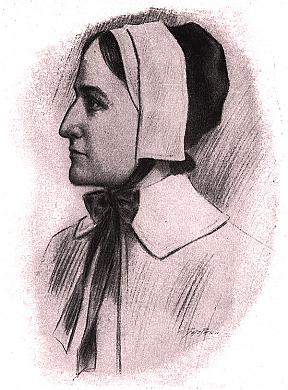


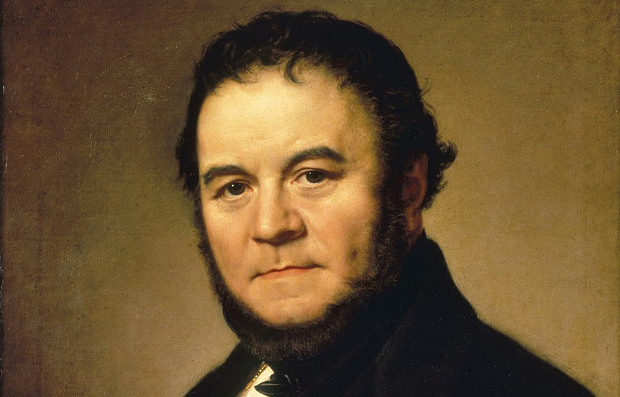
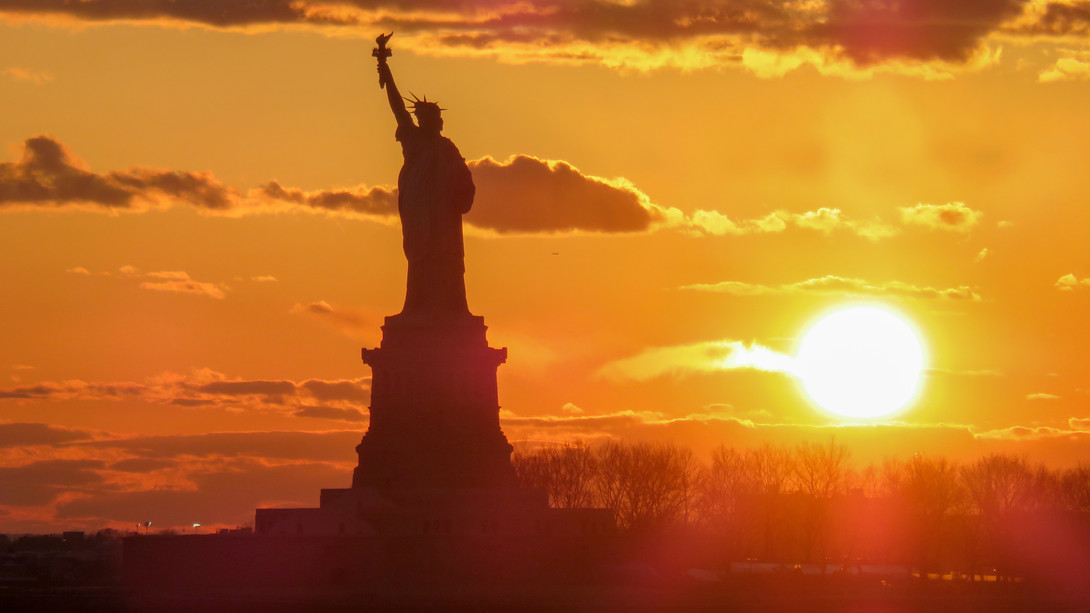
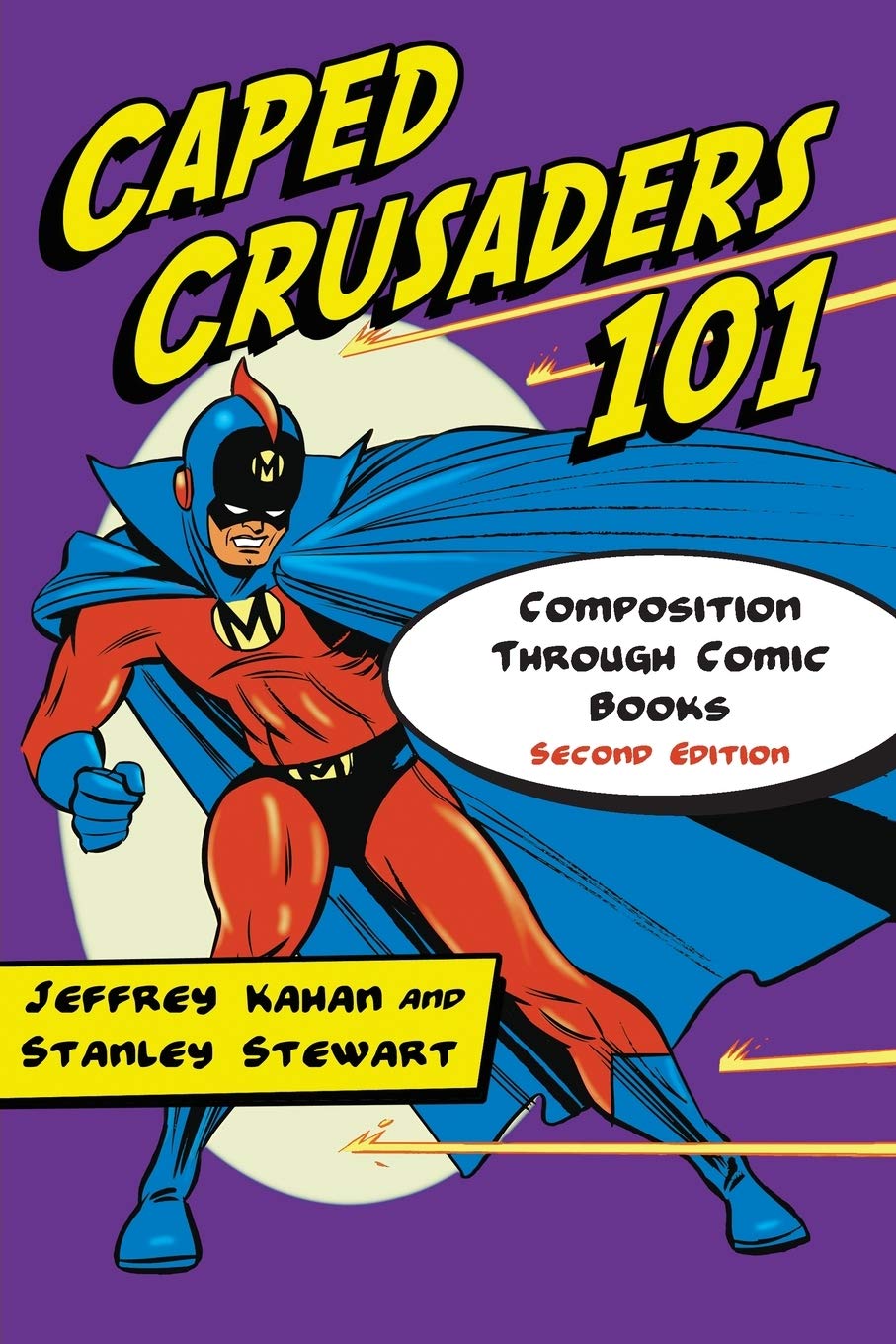
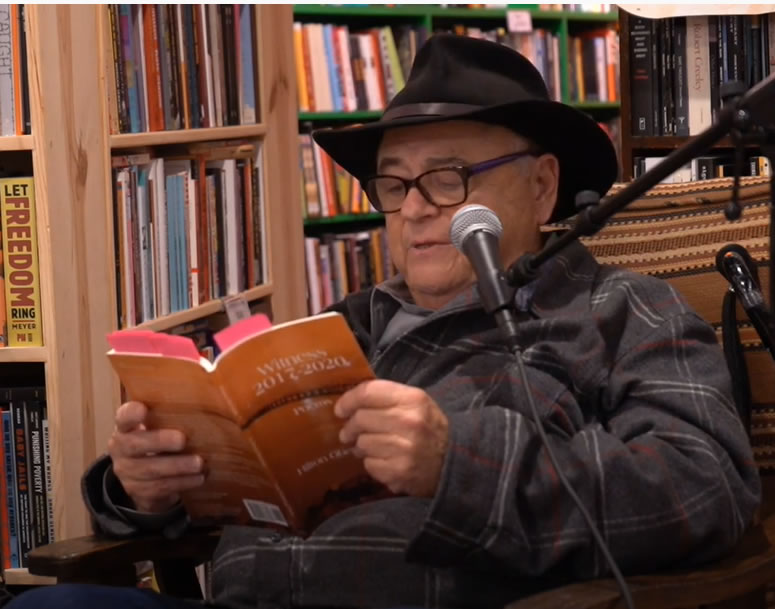

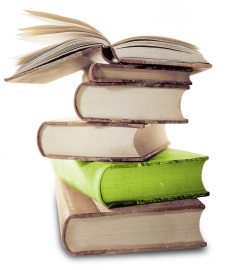
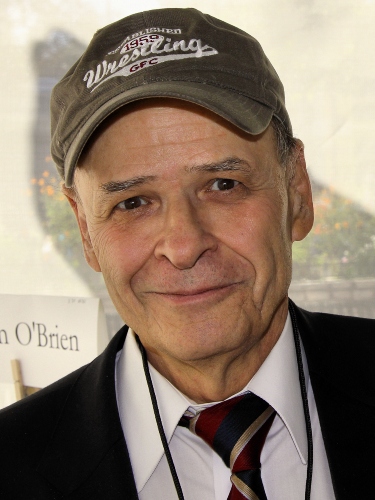


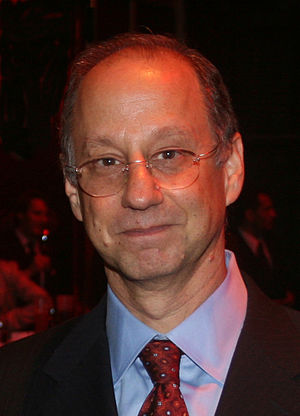
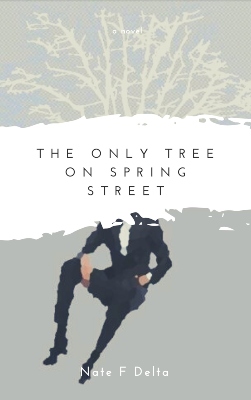
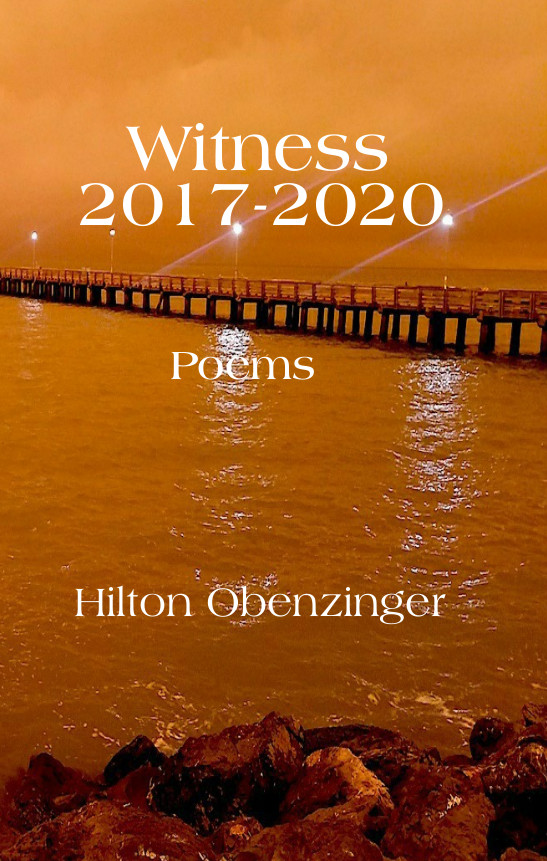
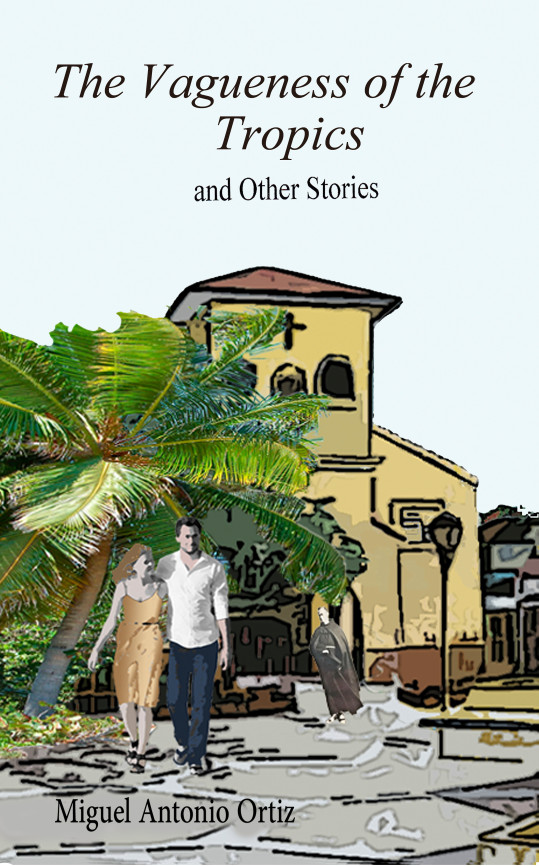
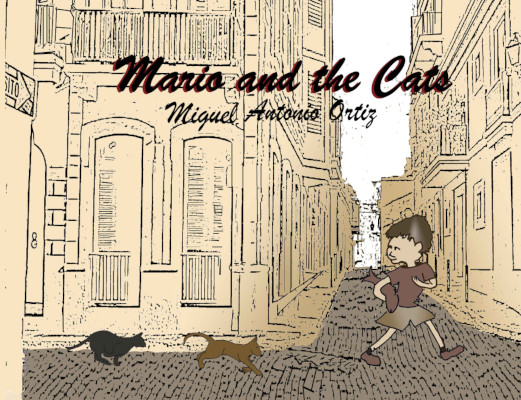
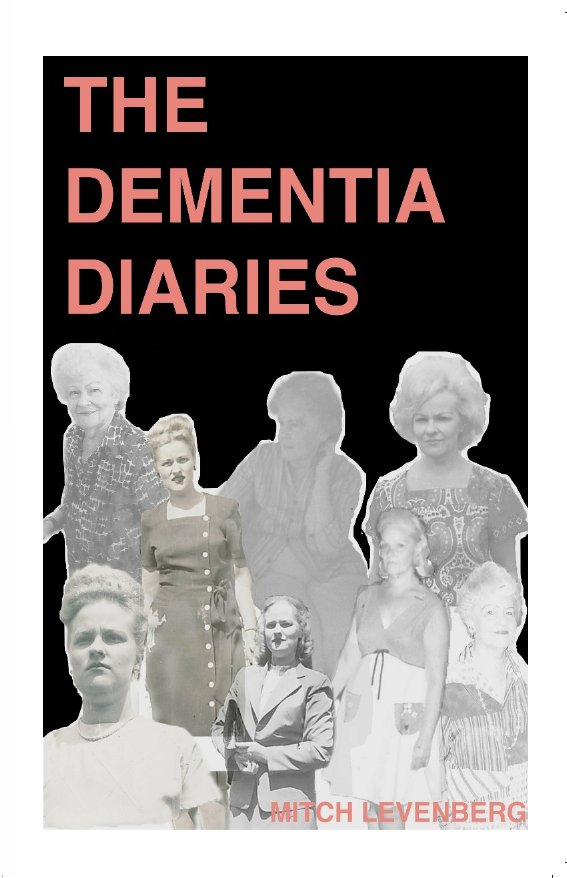
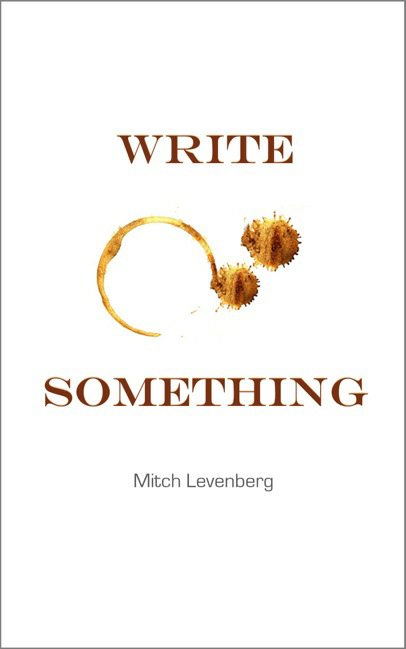

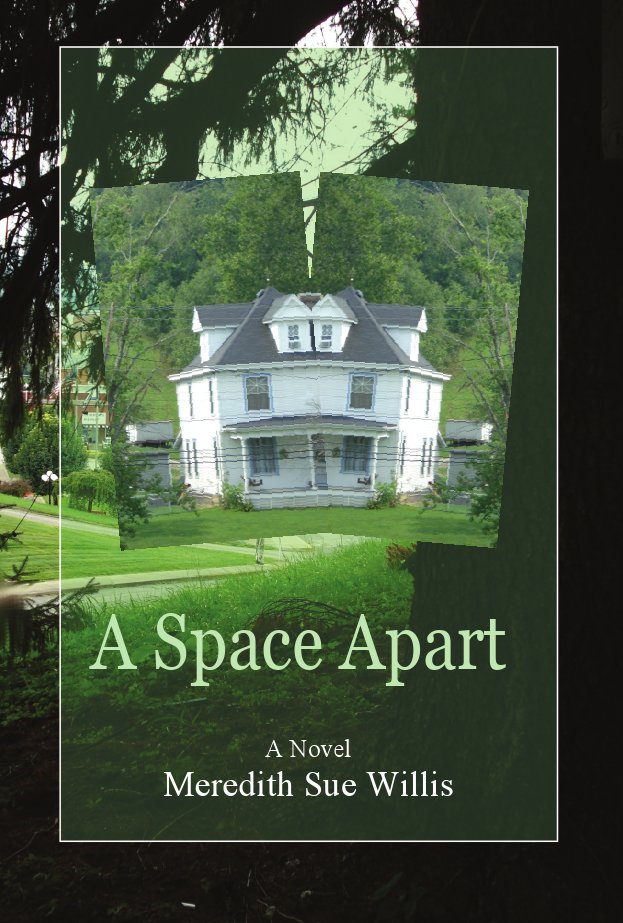
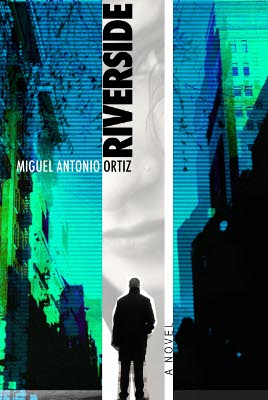
.jpg)
